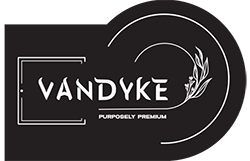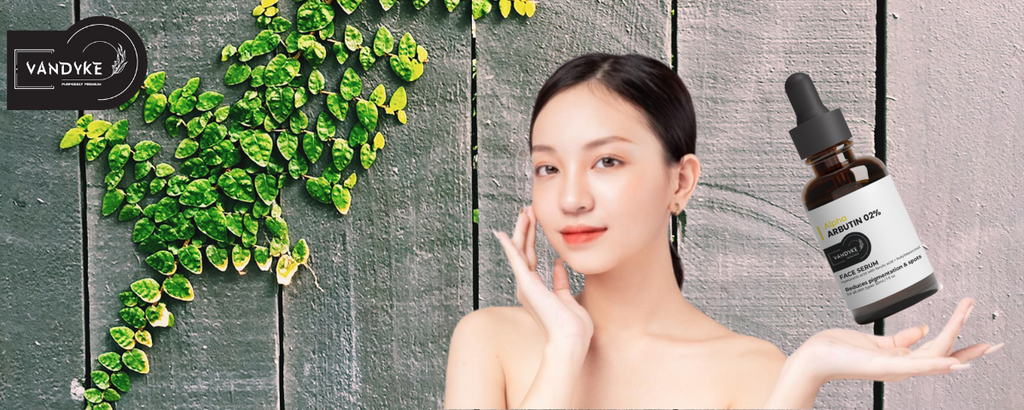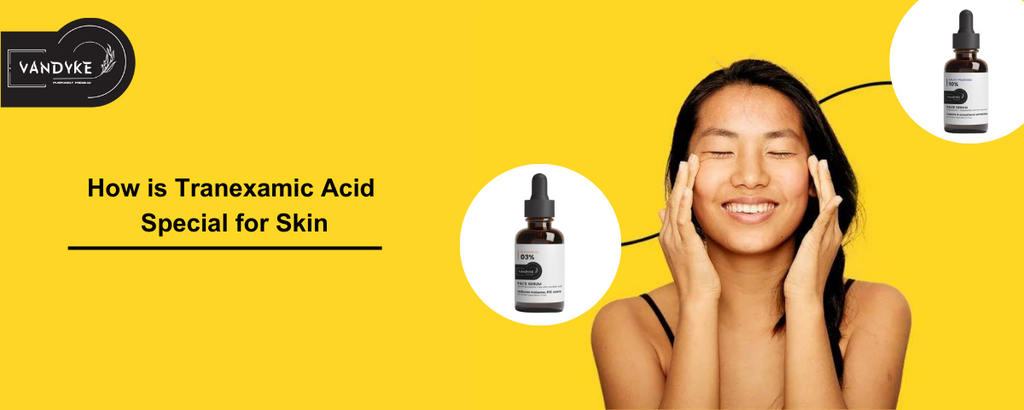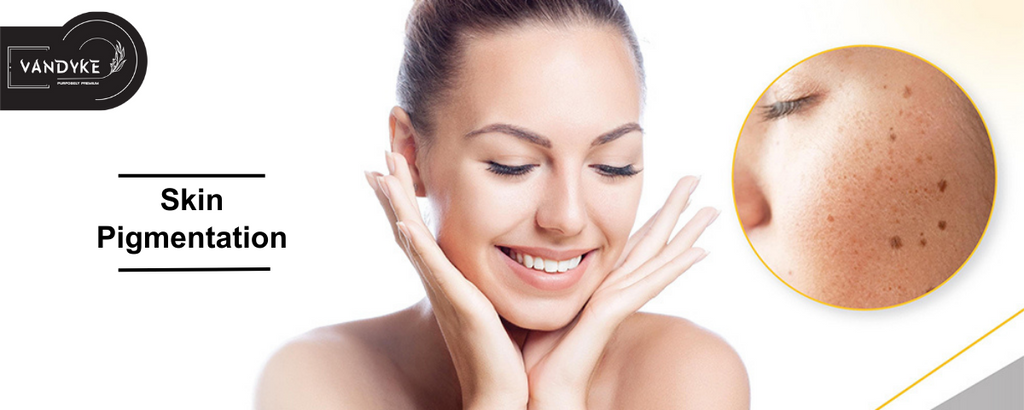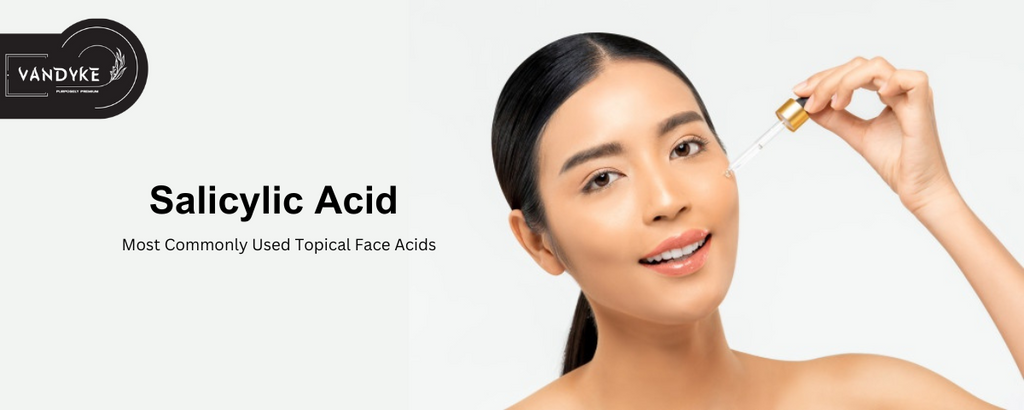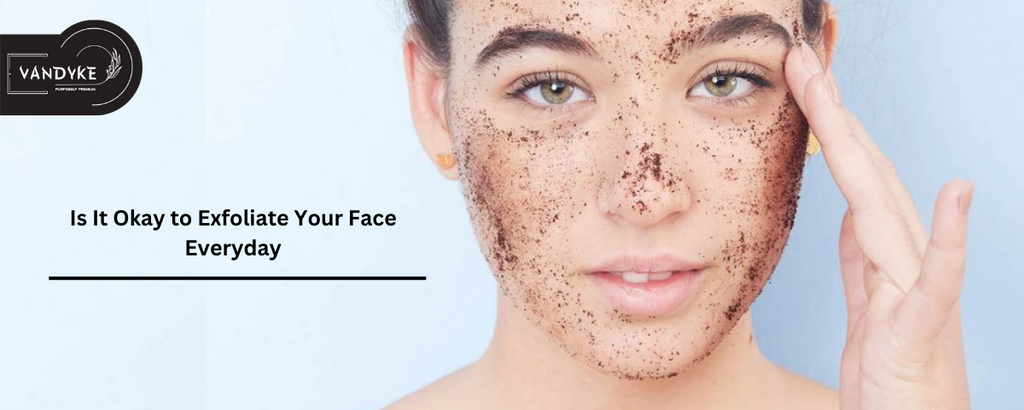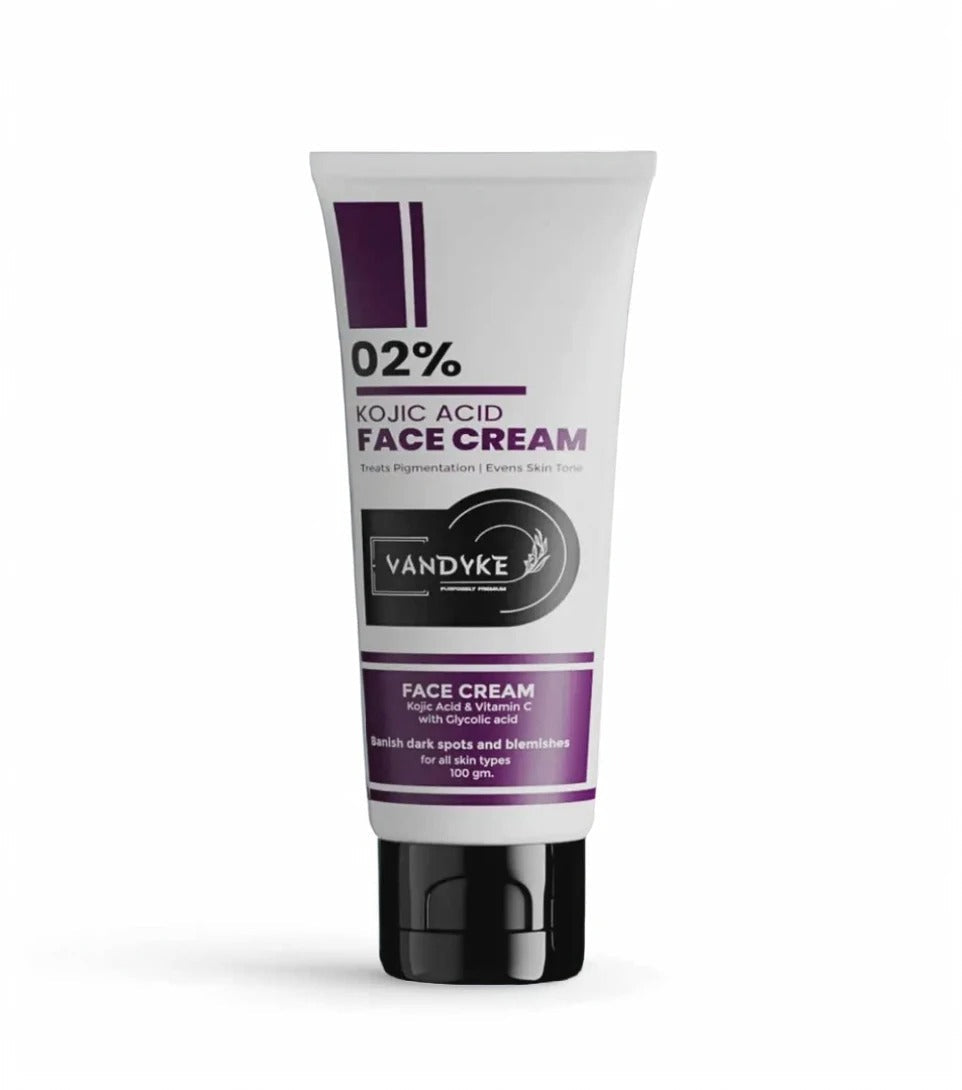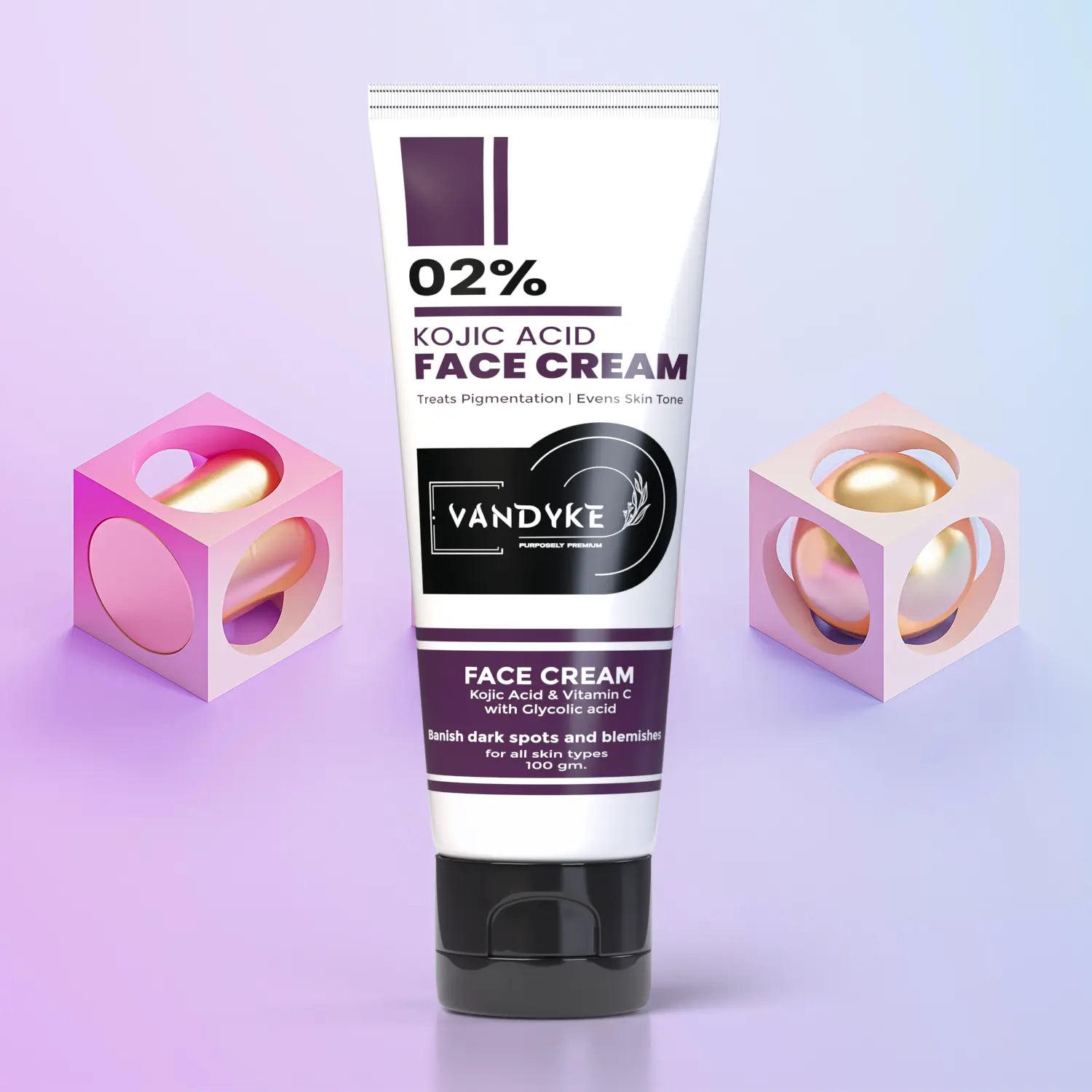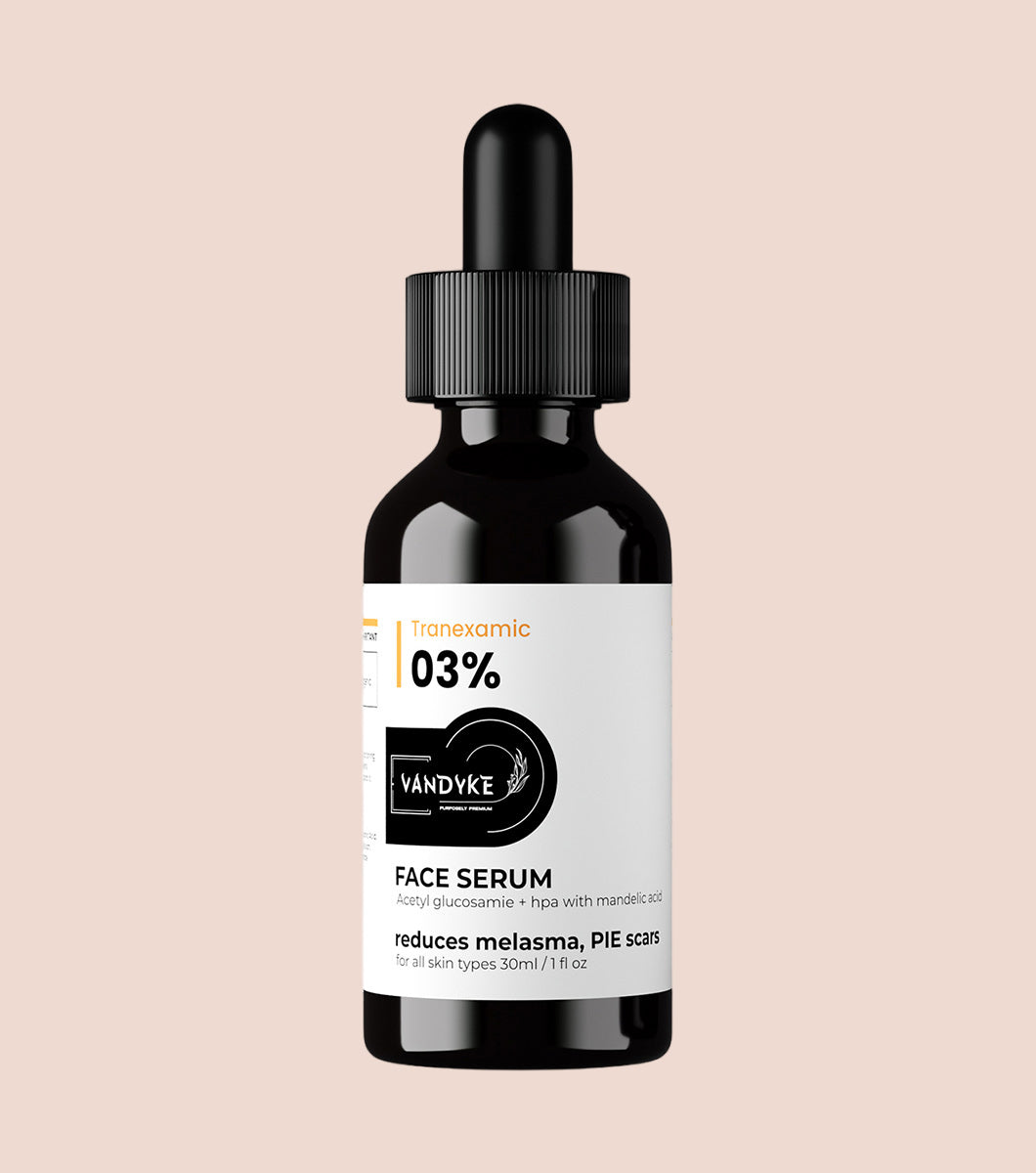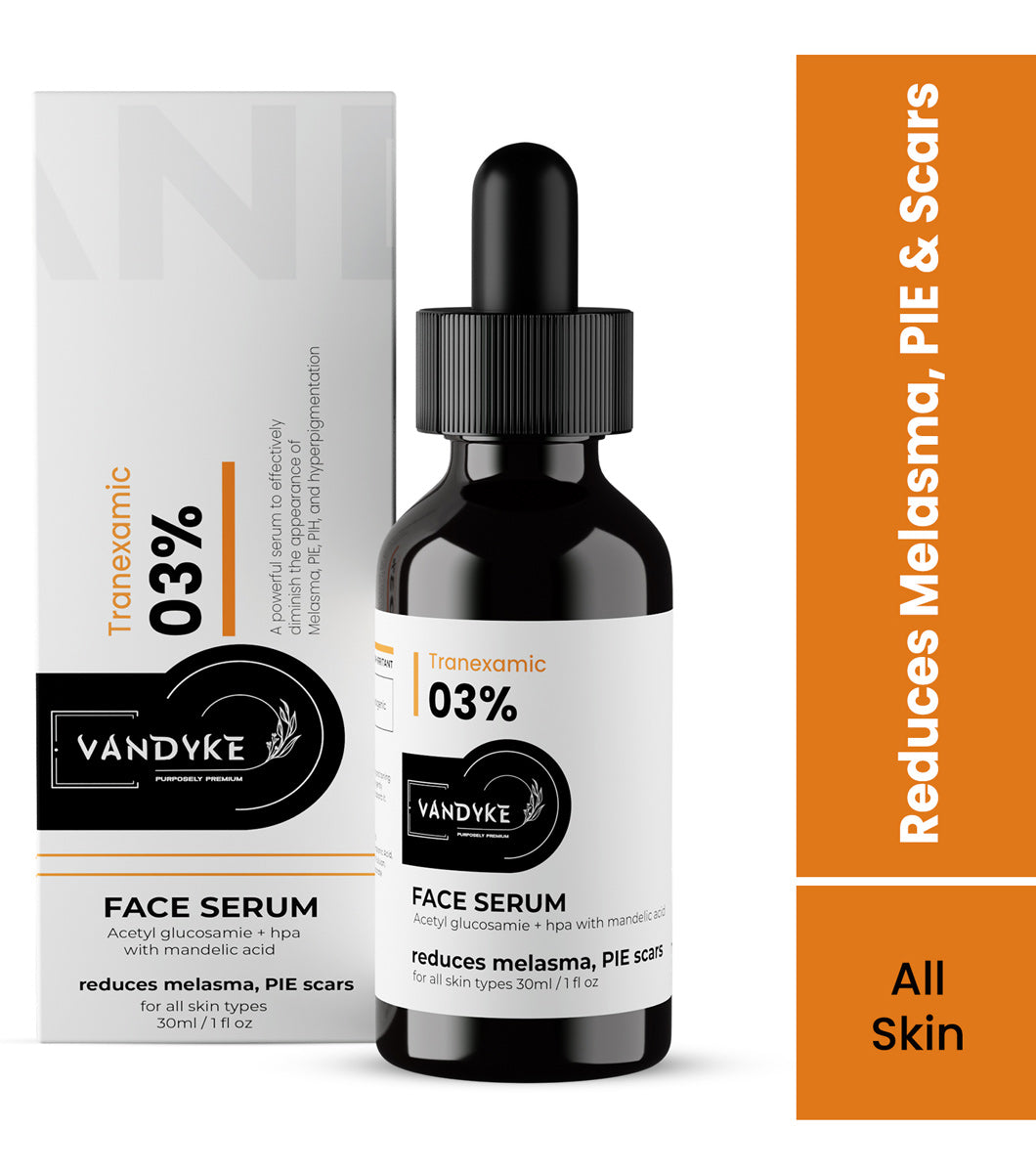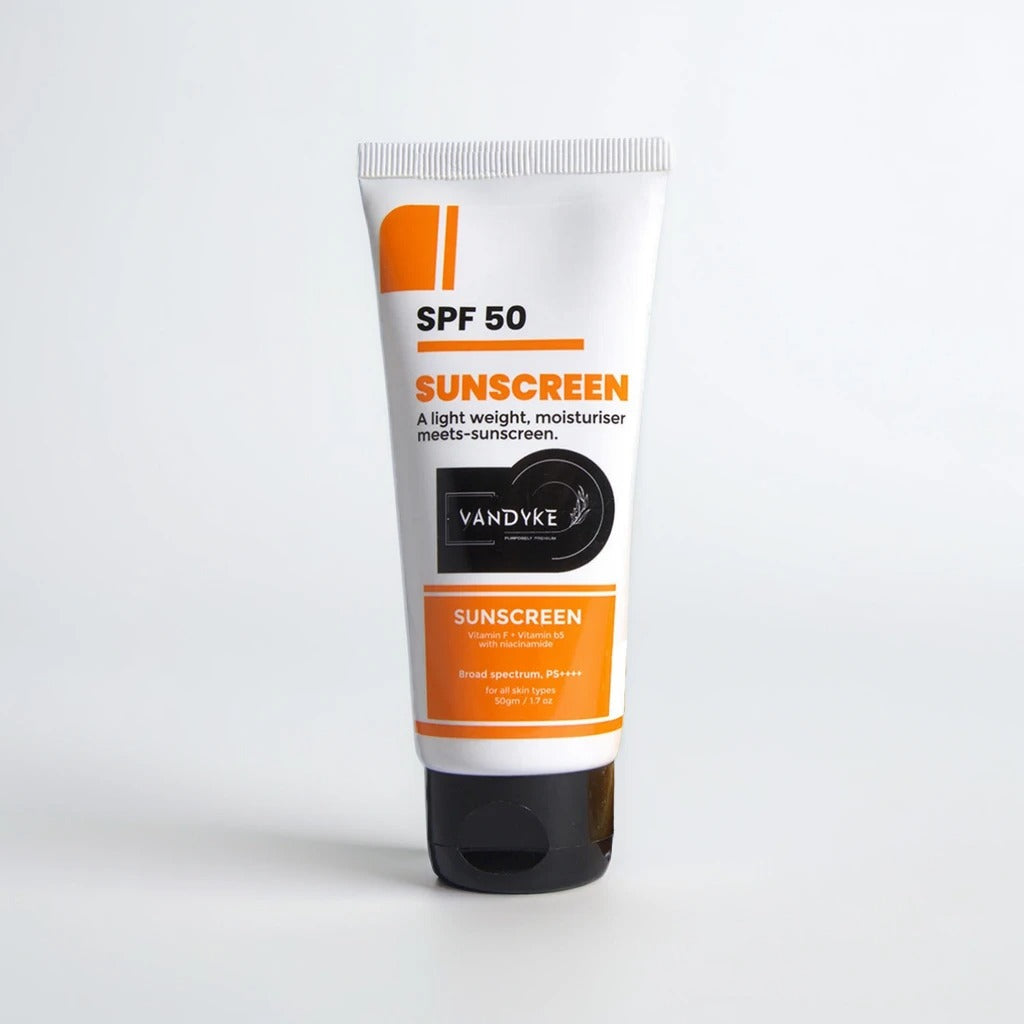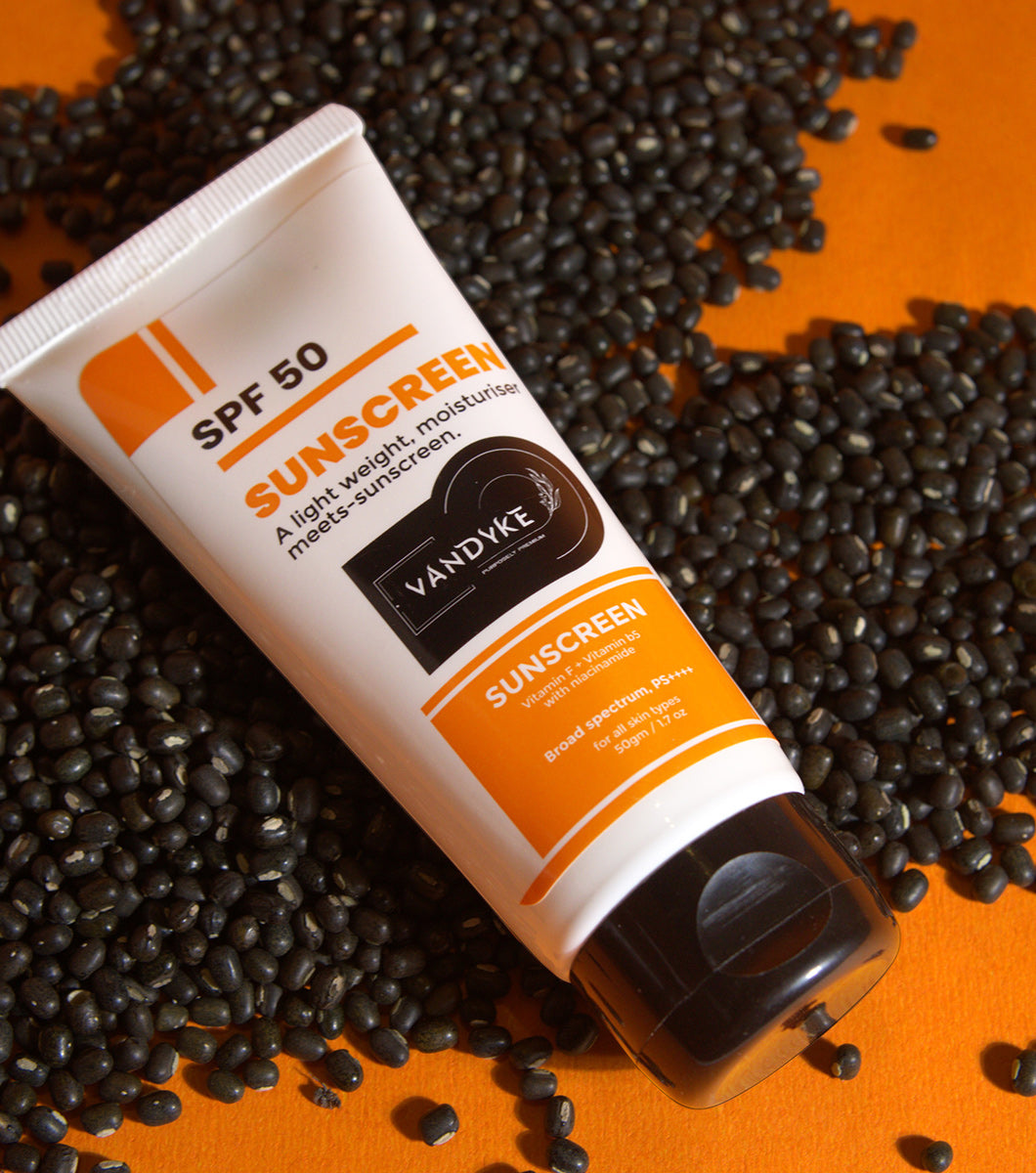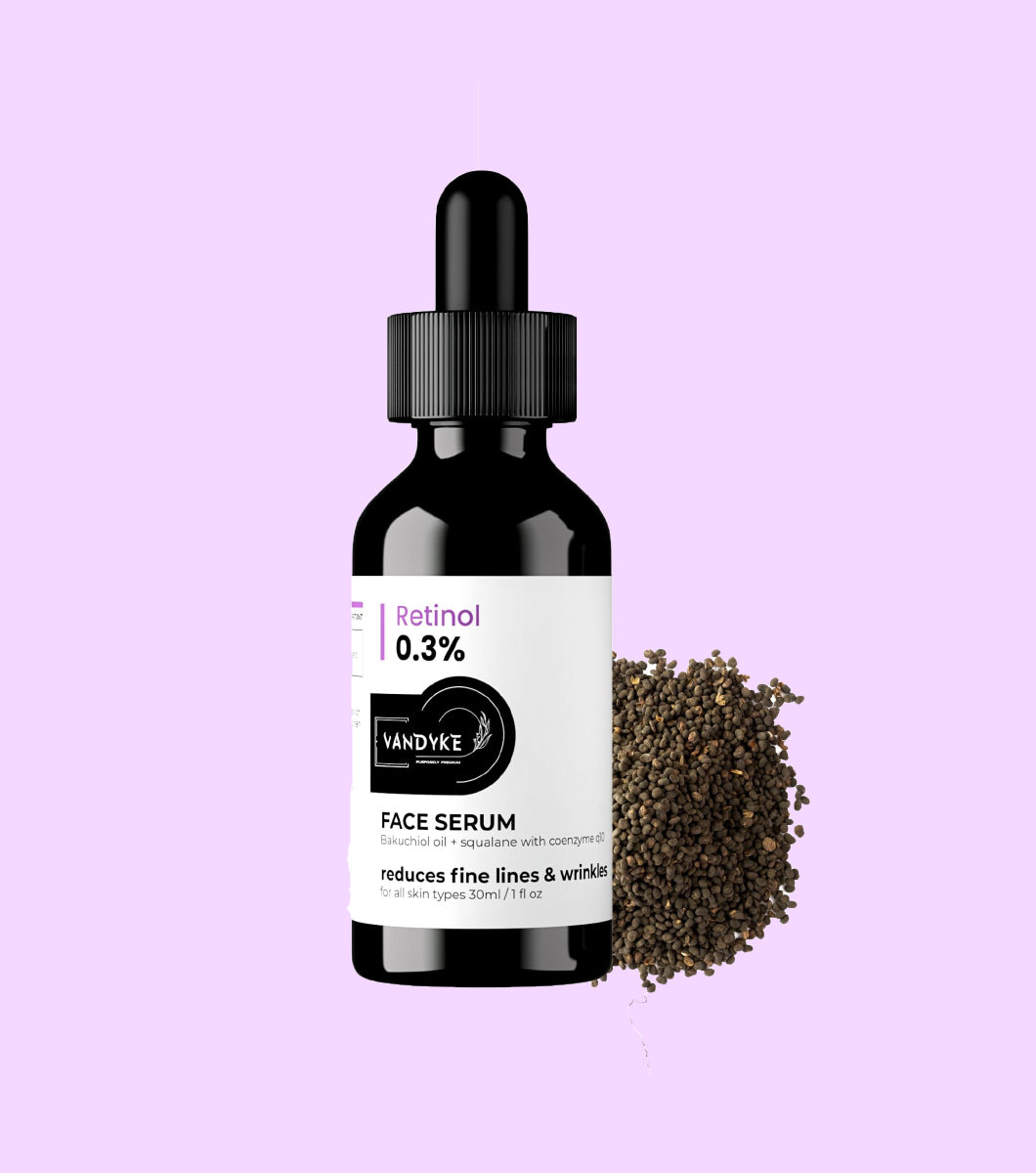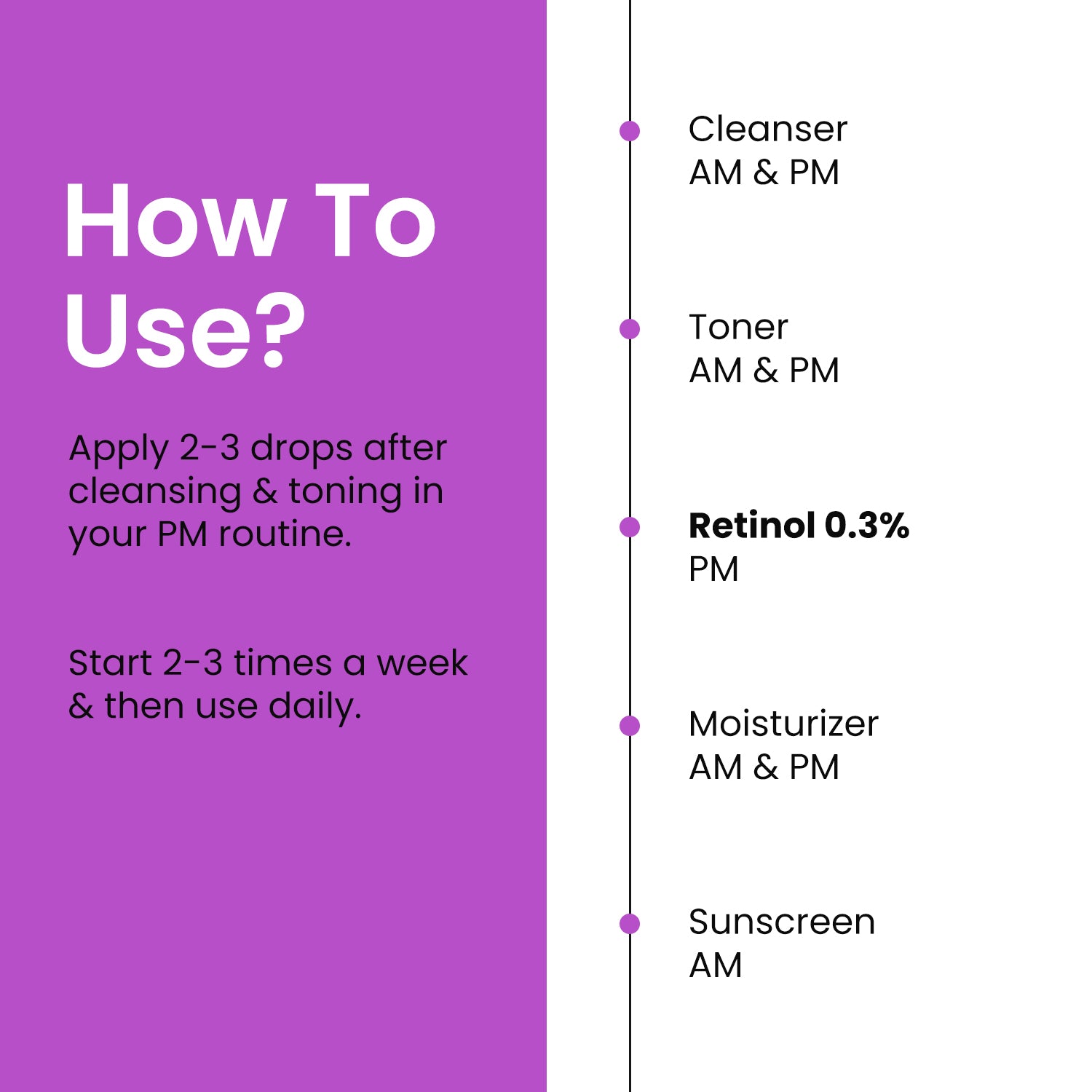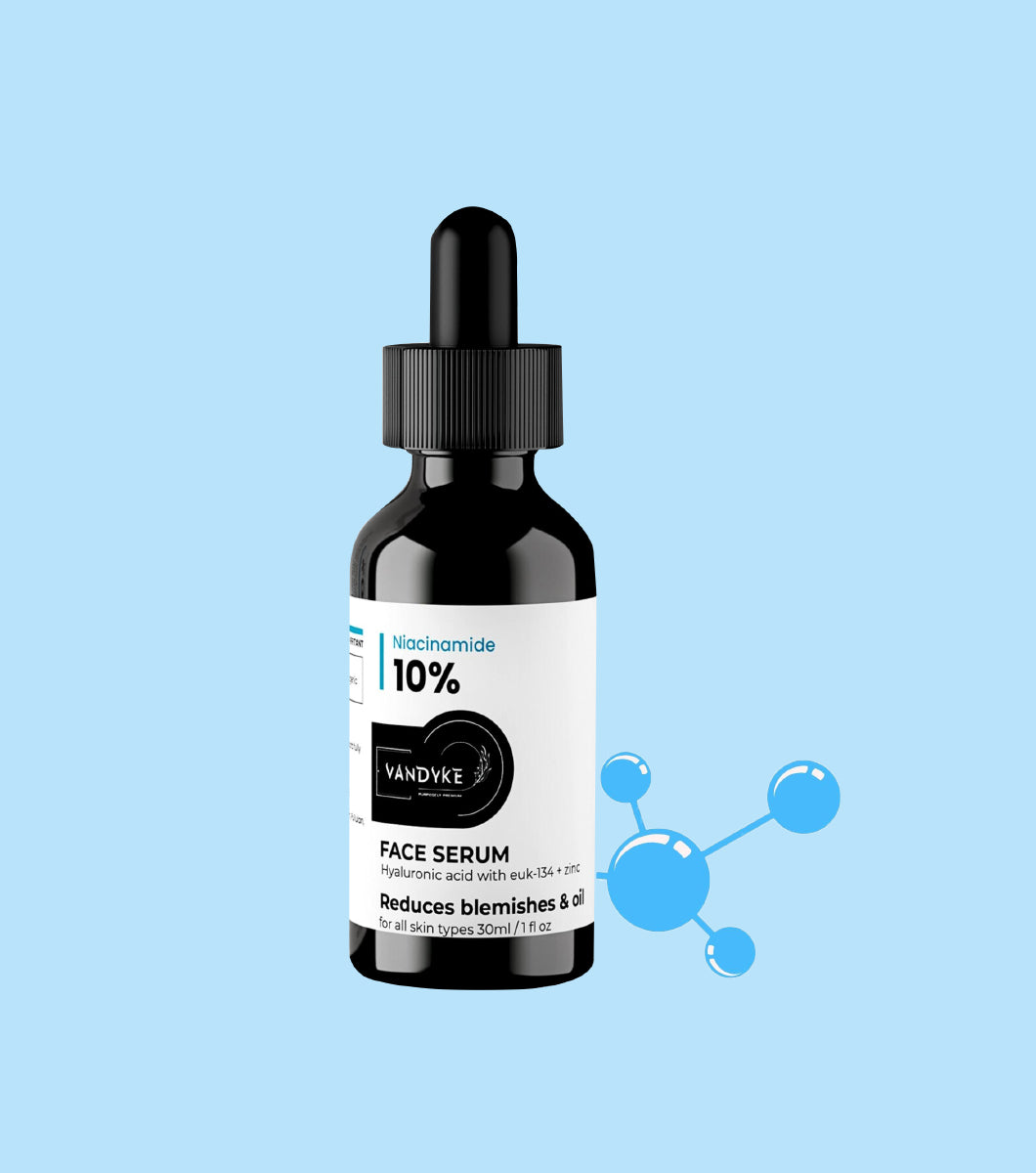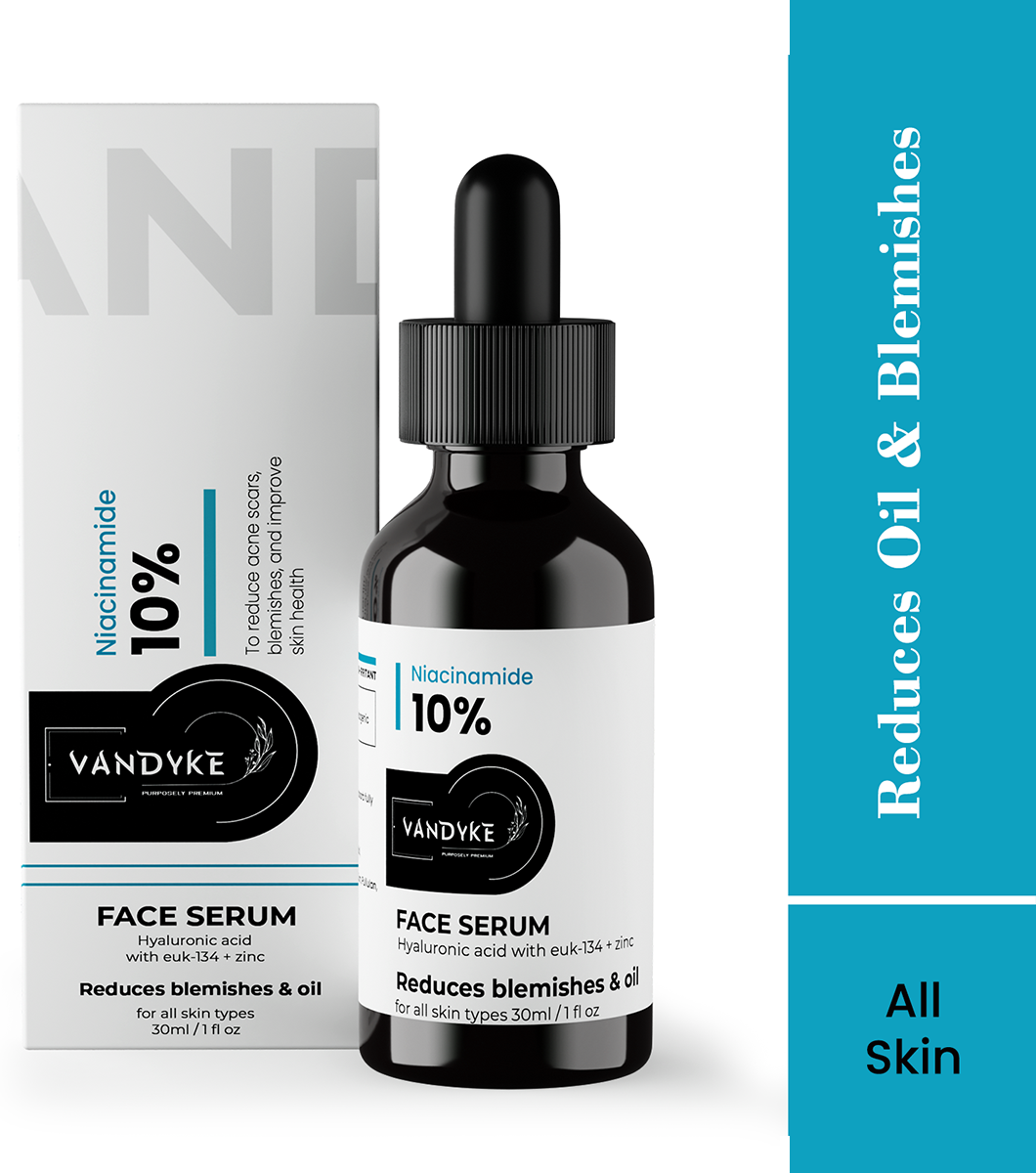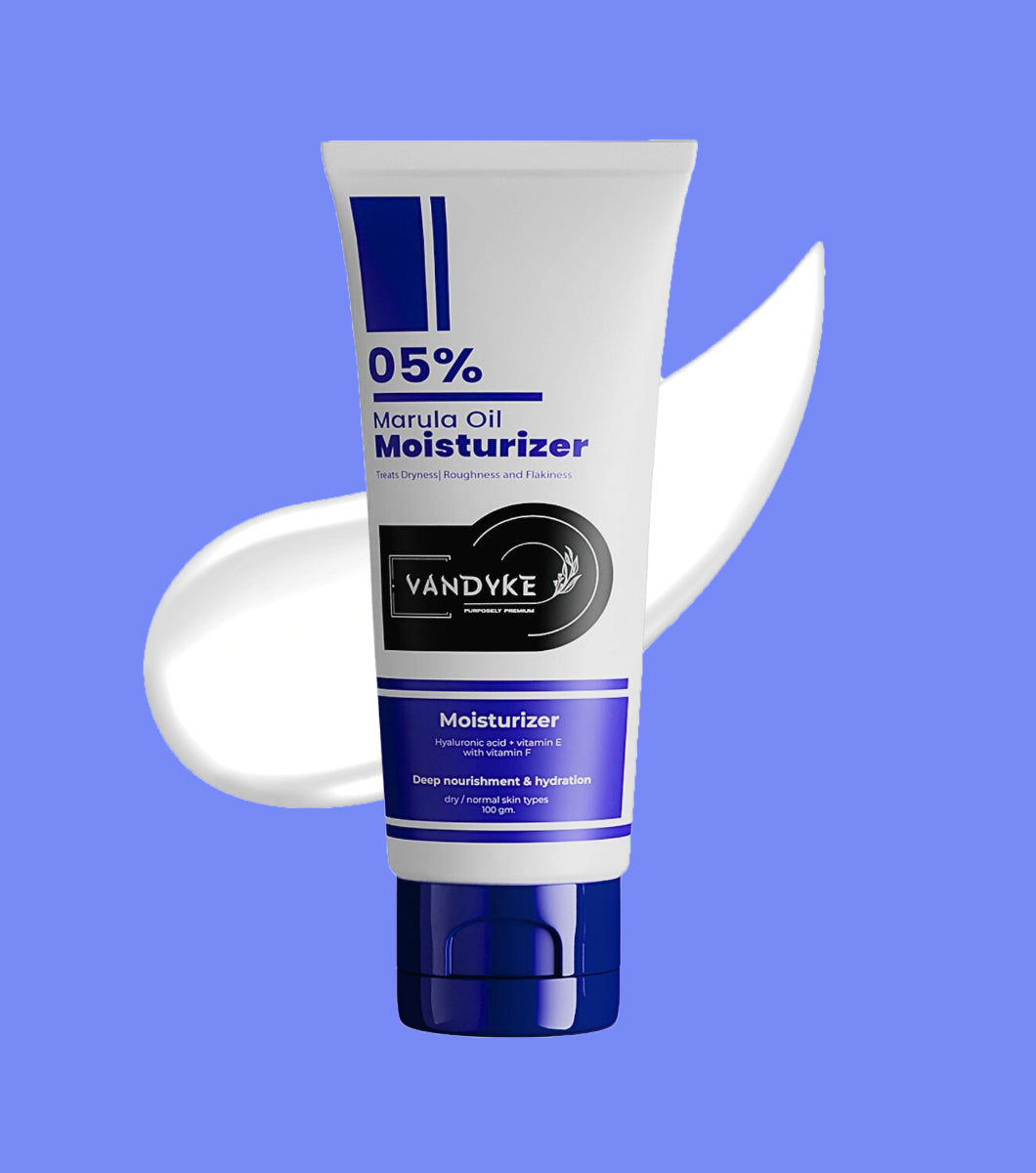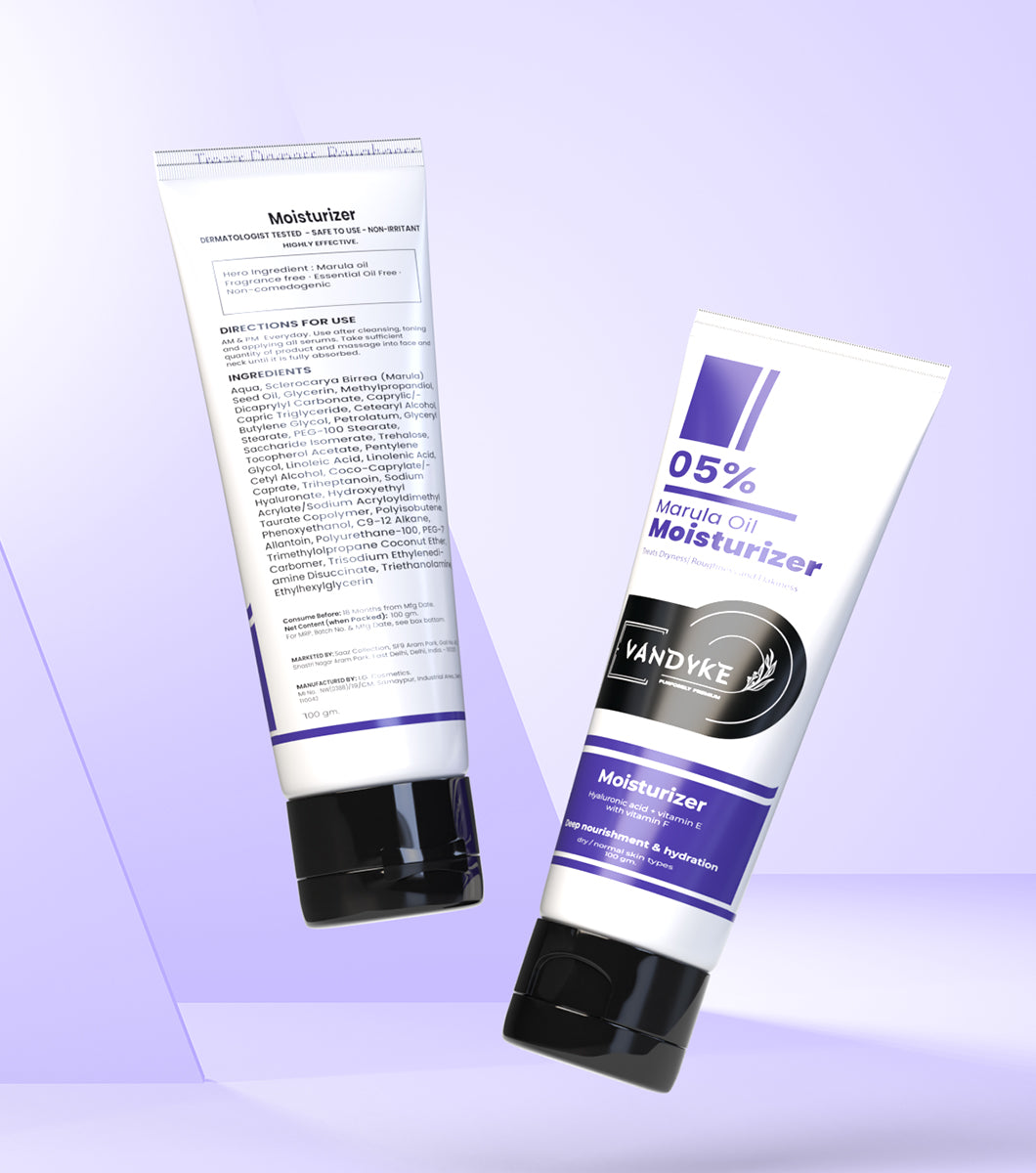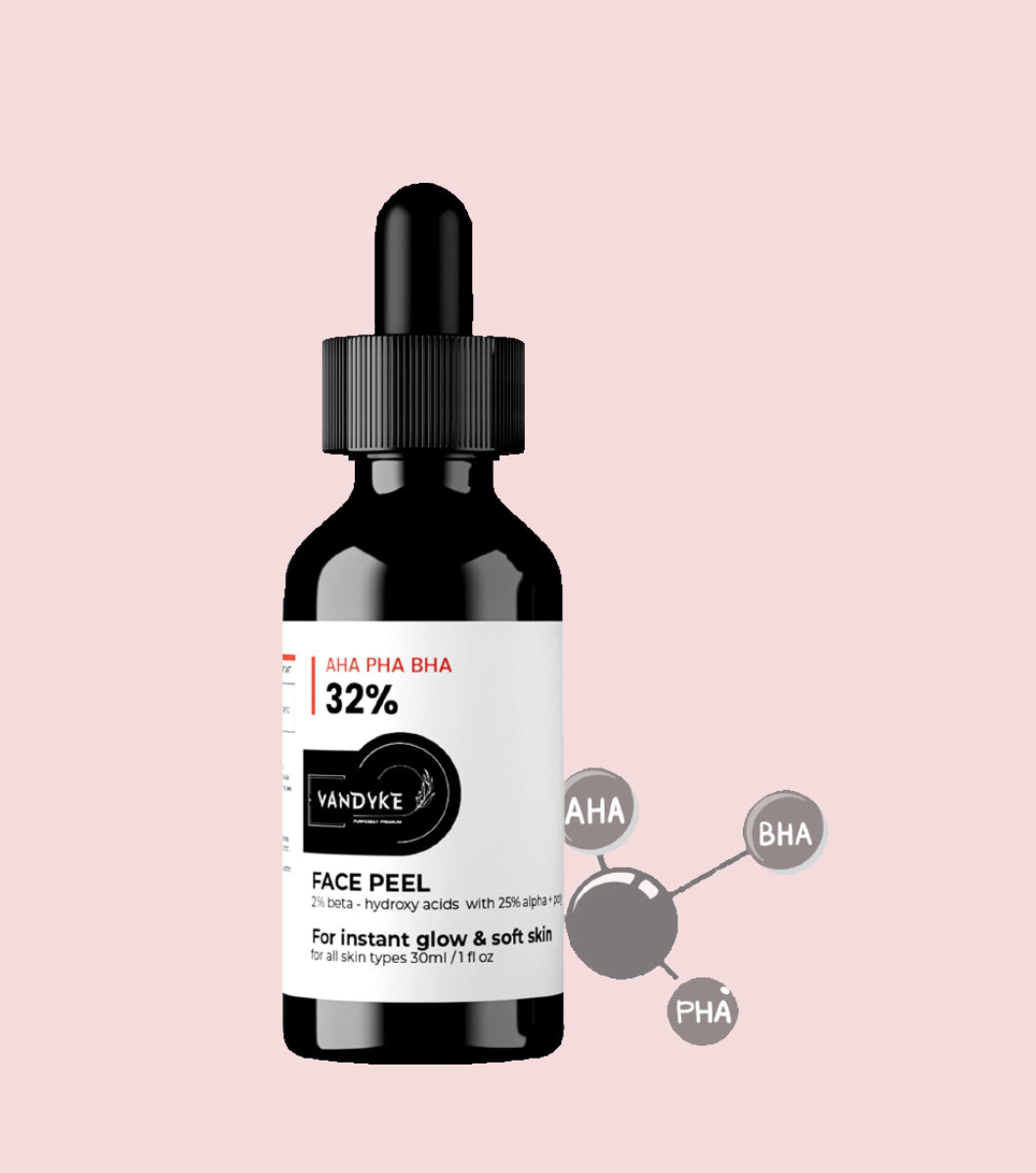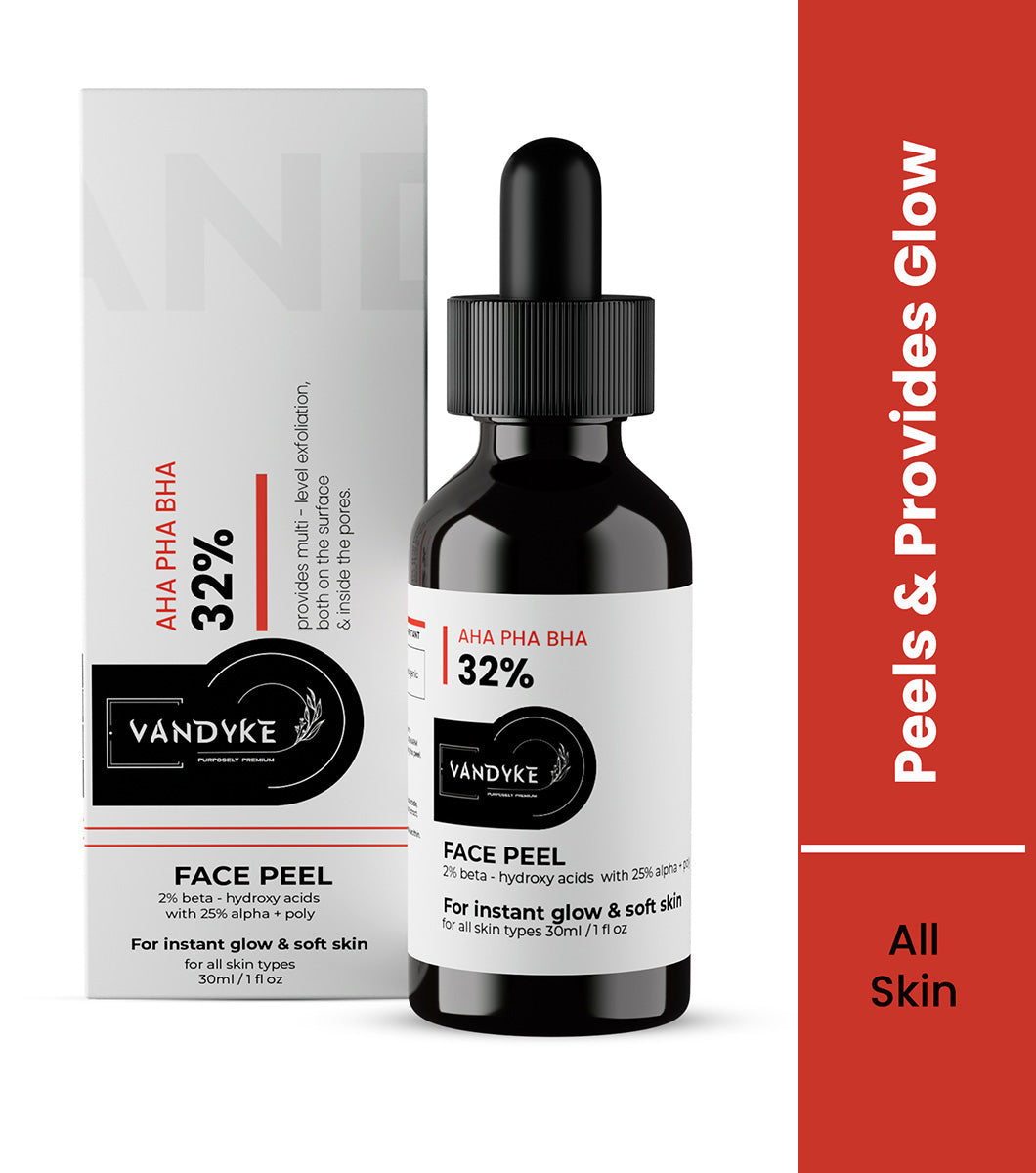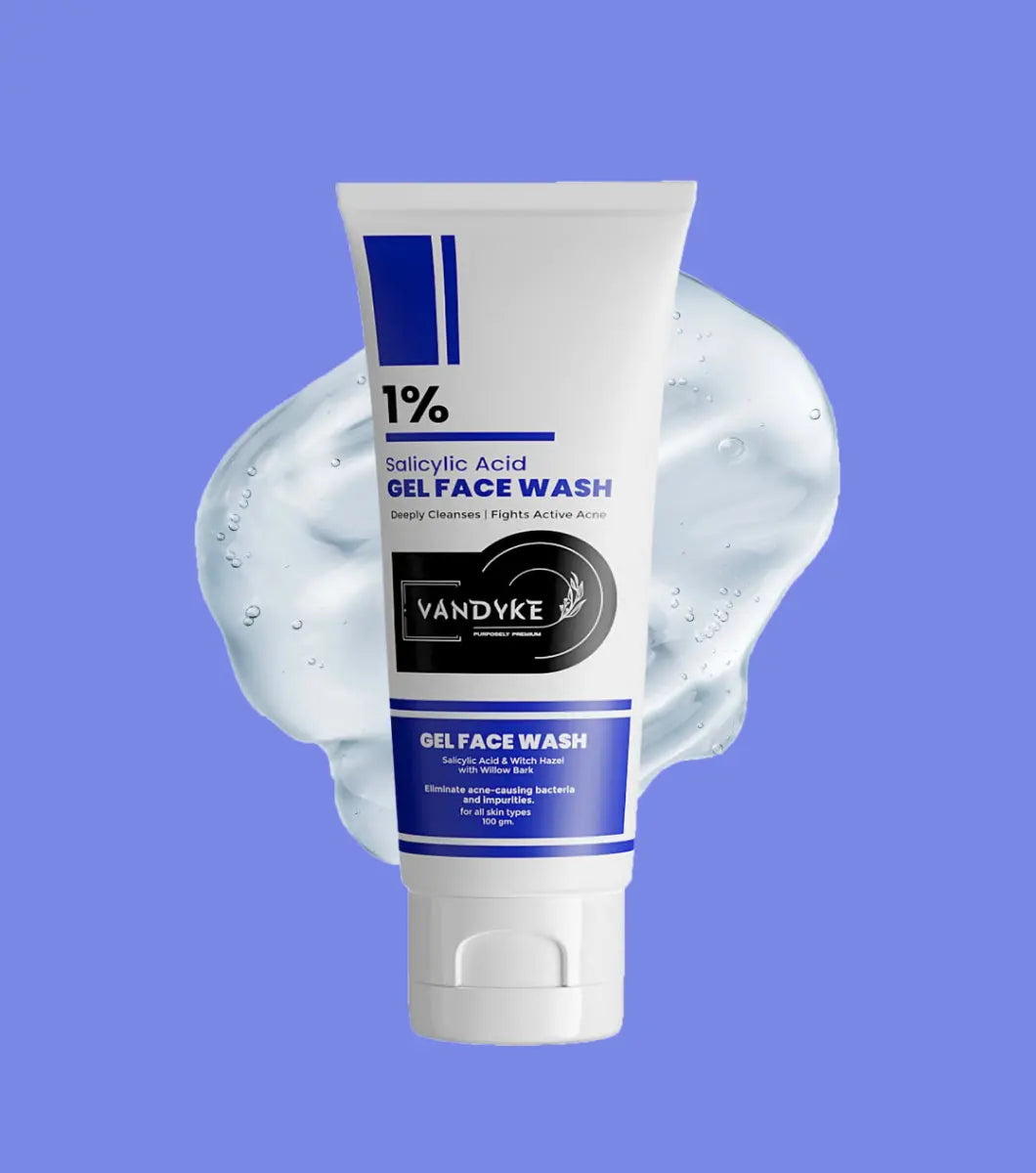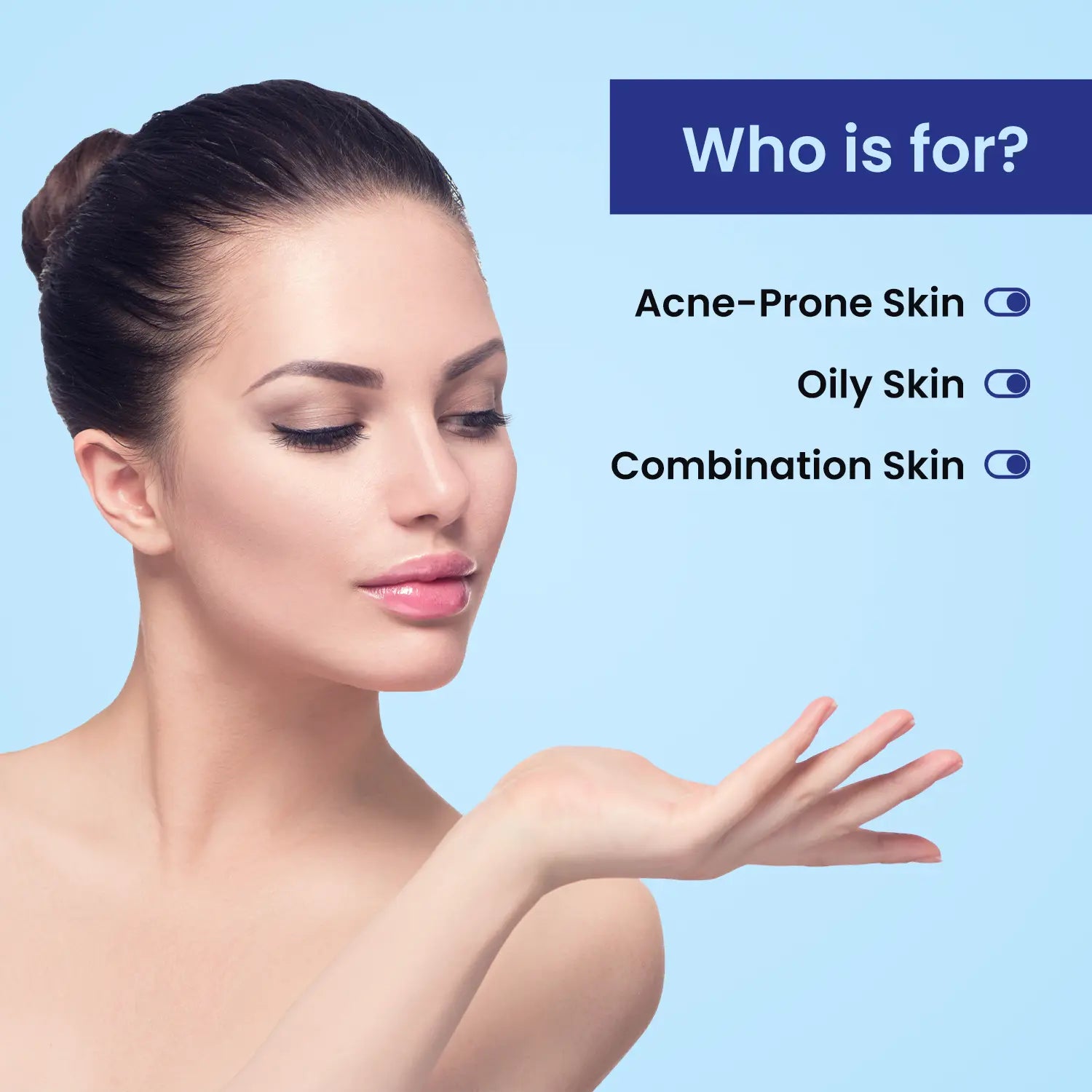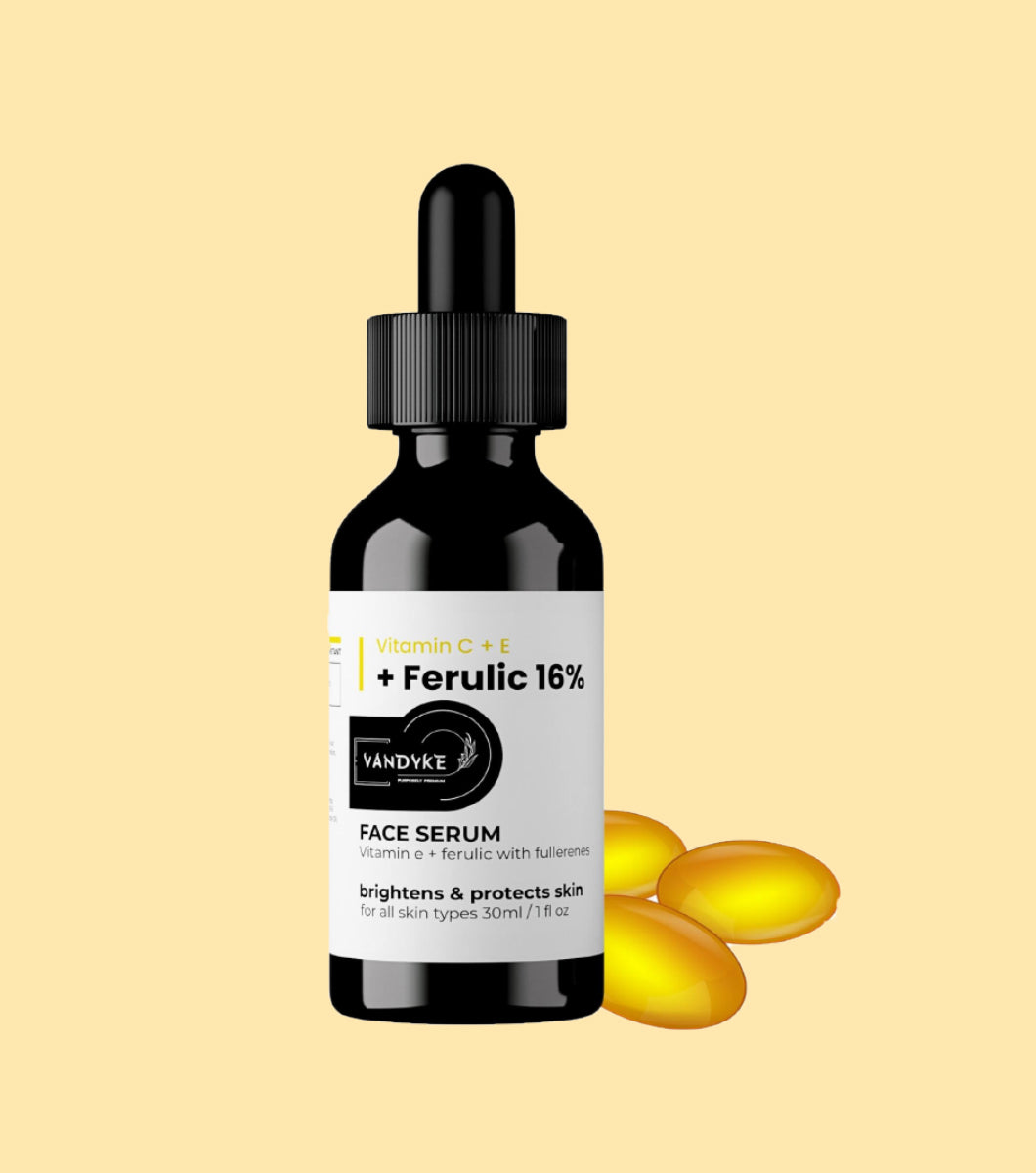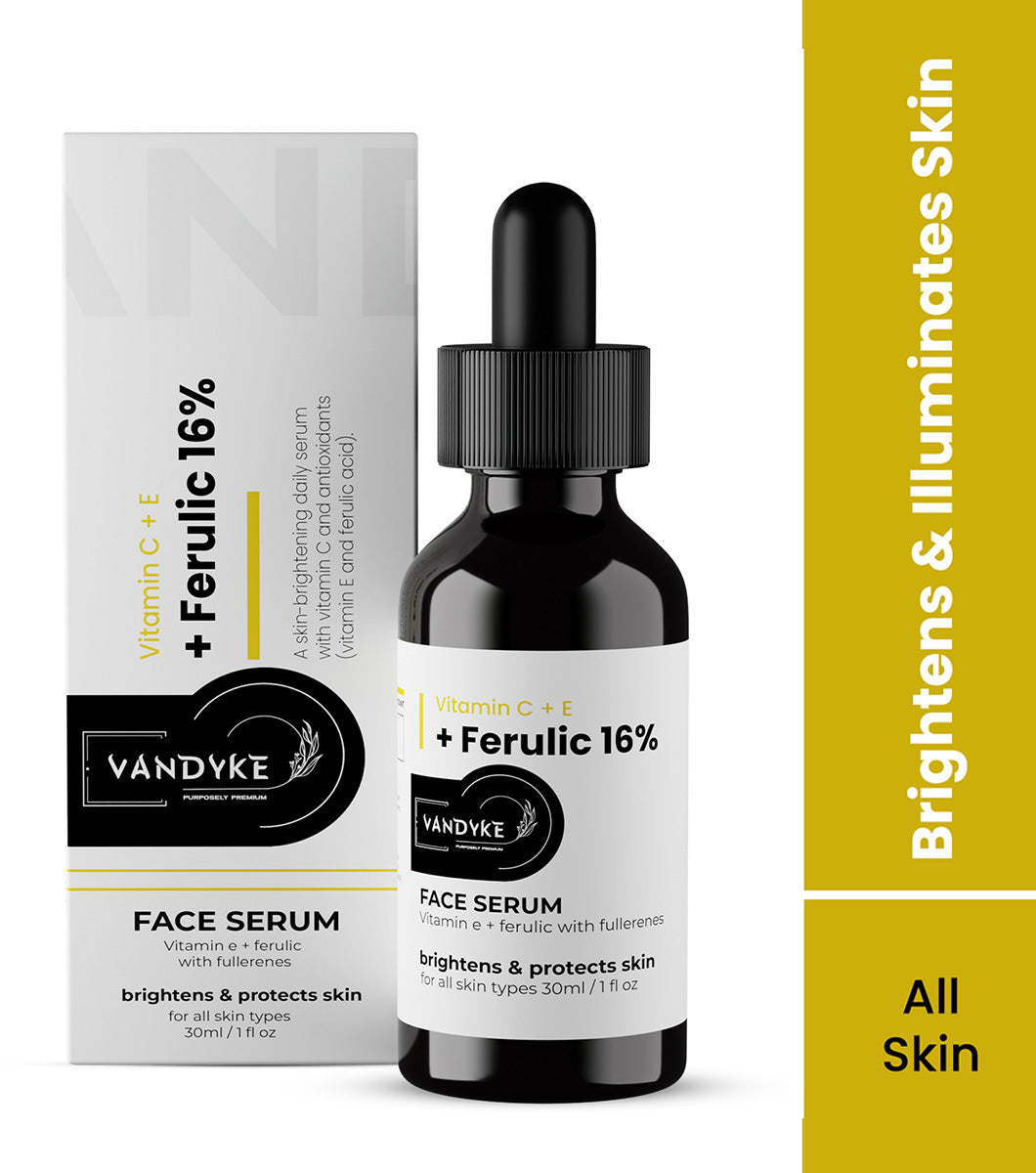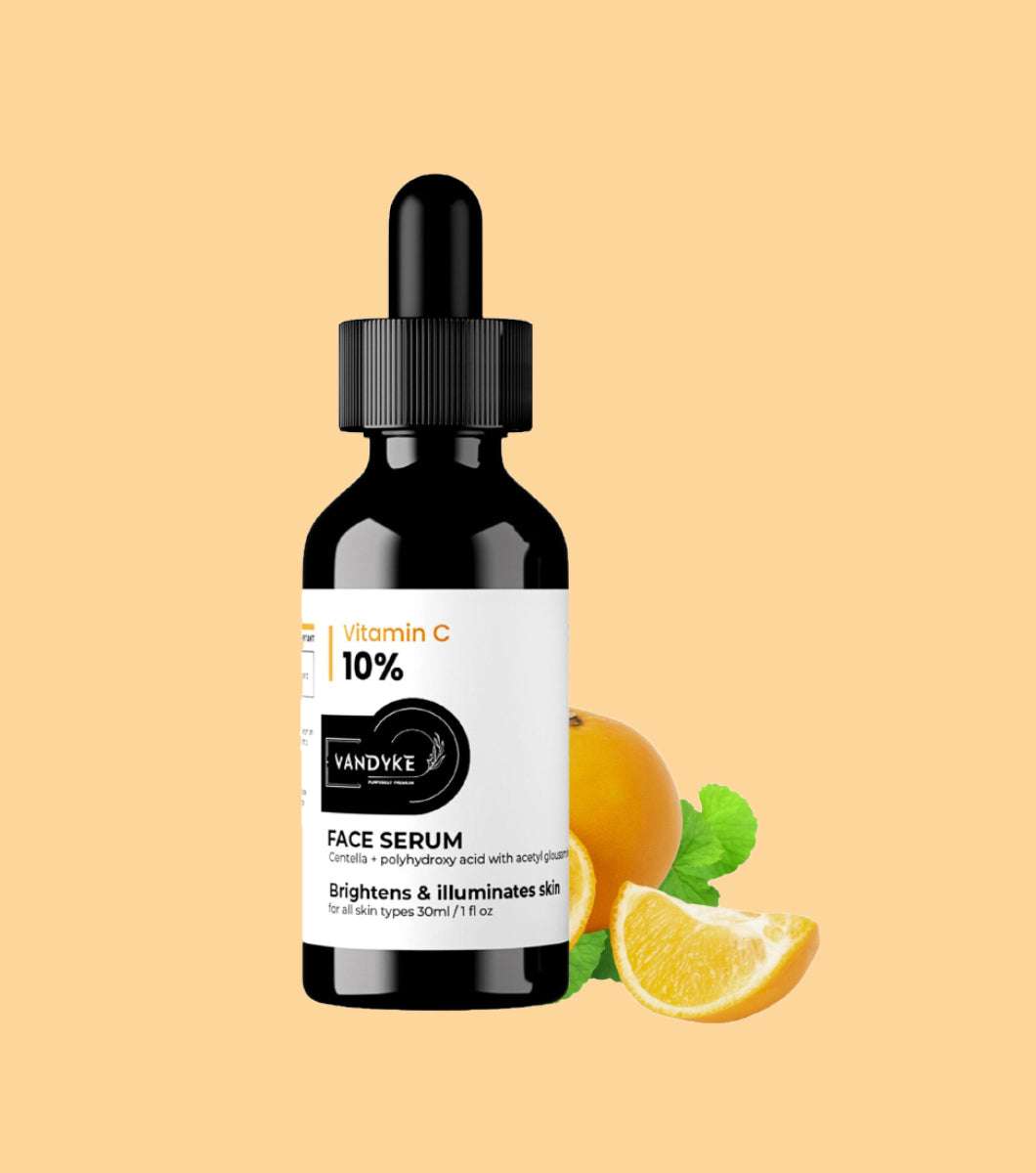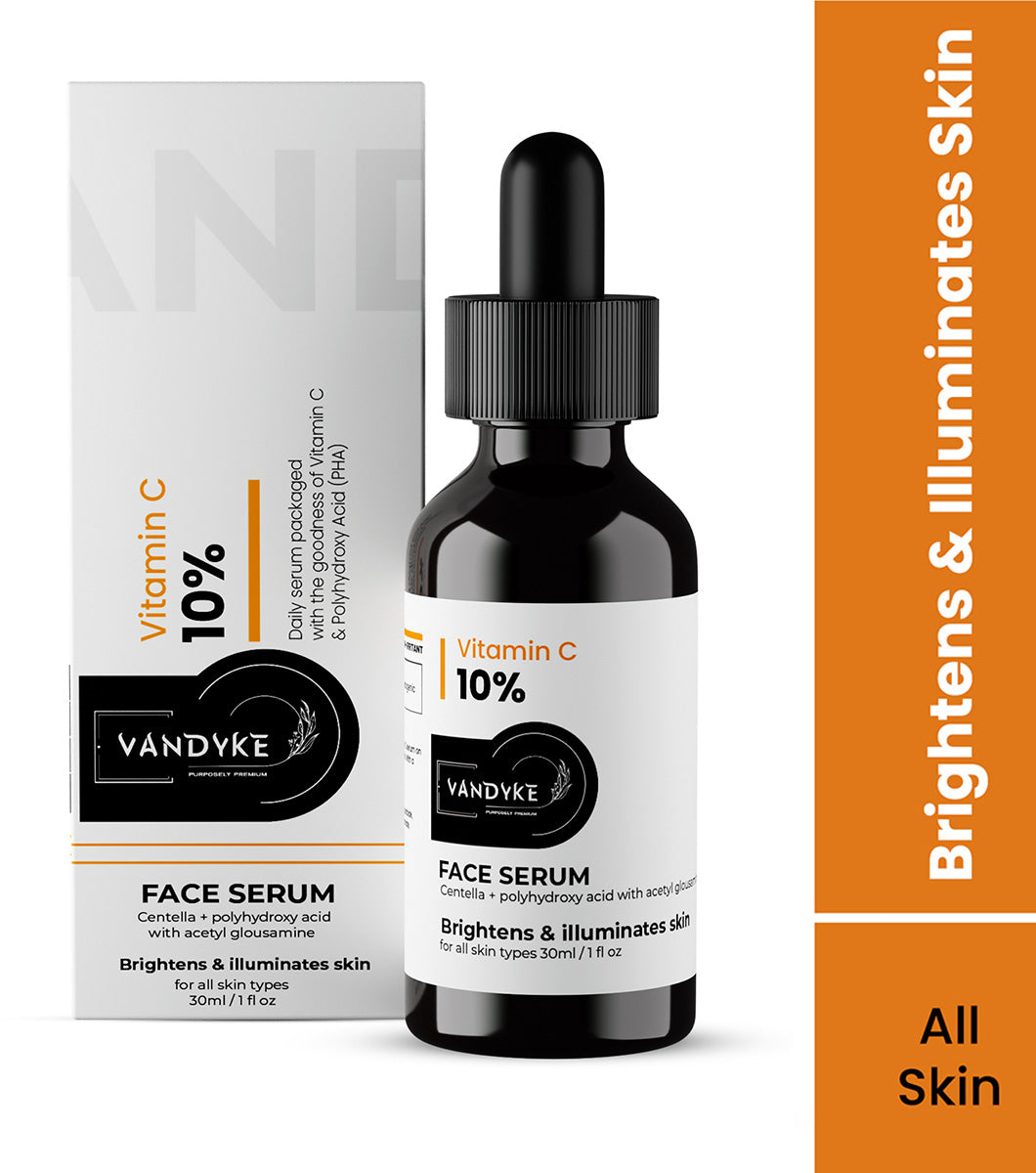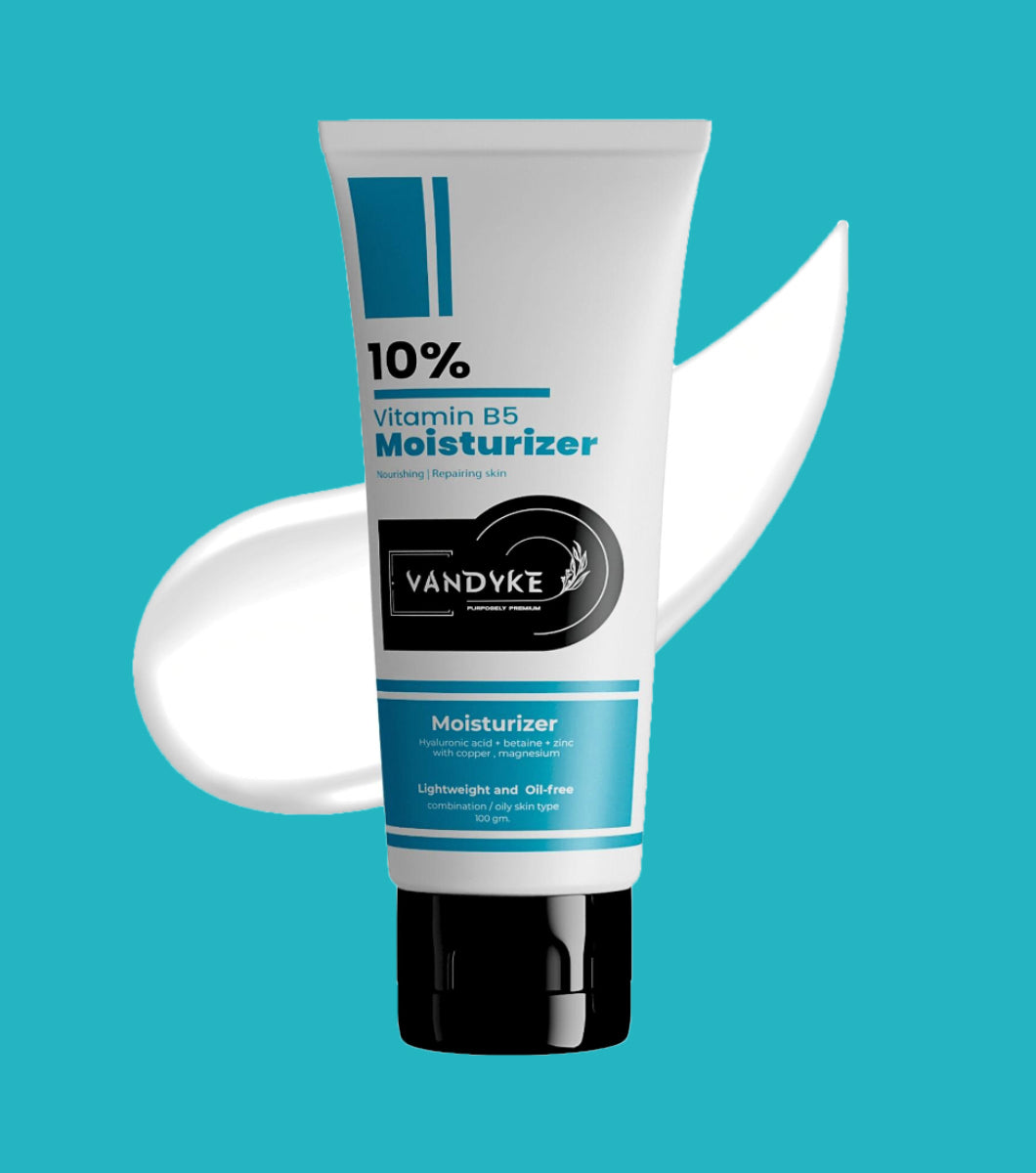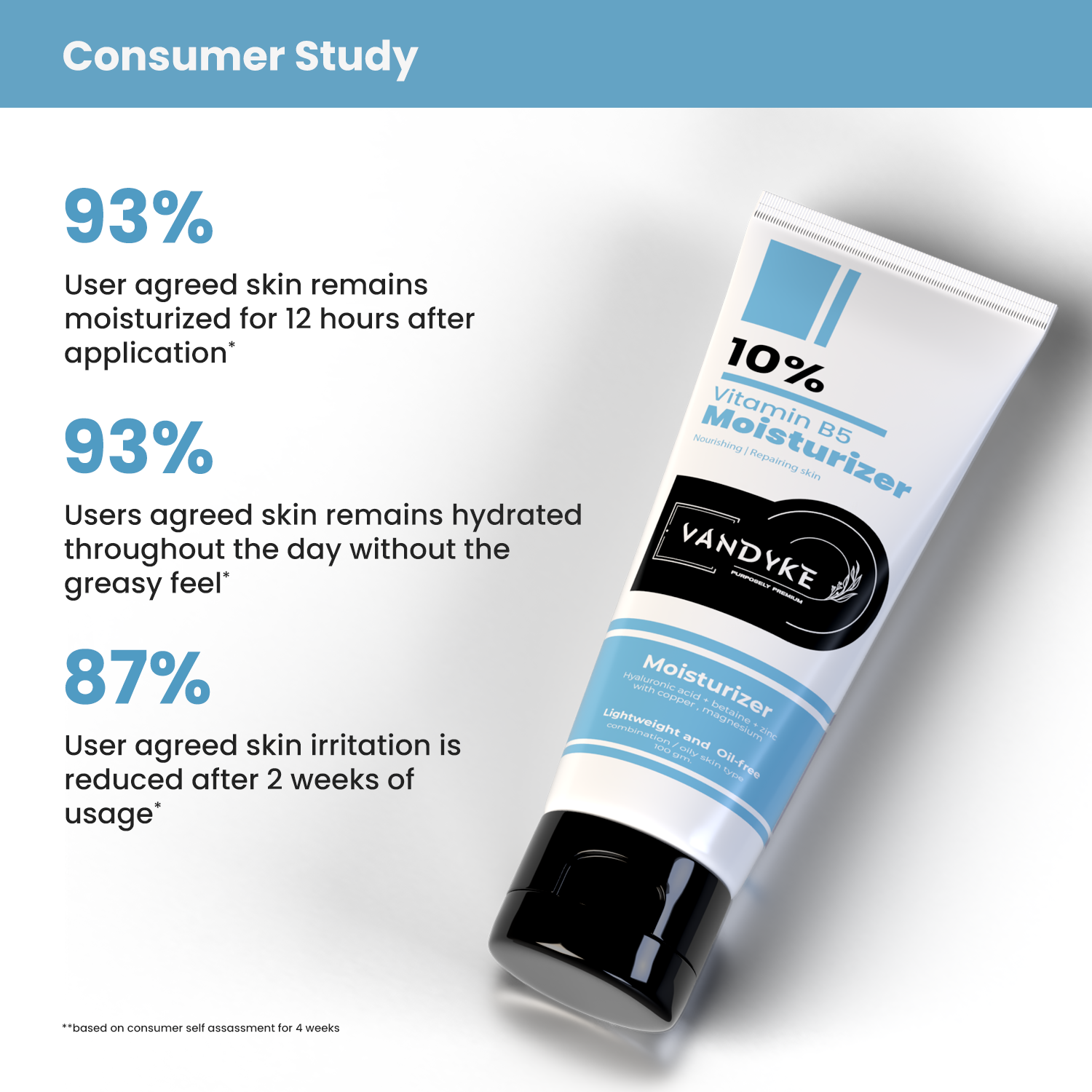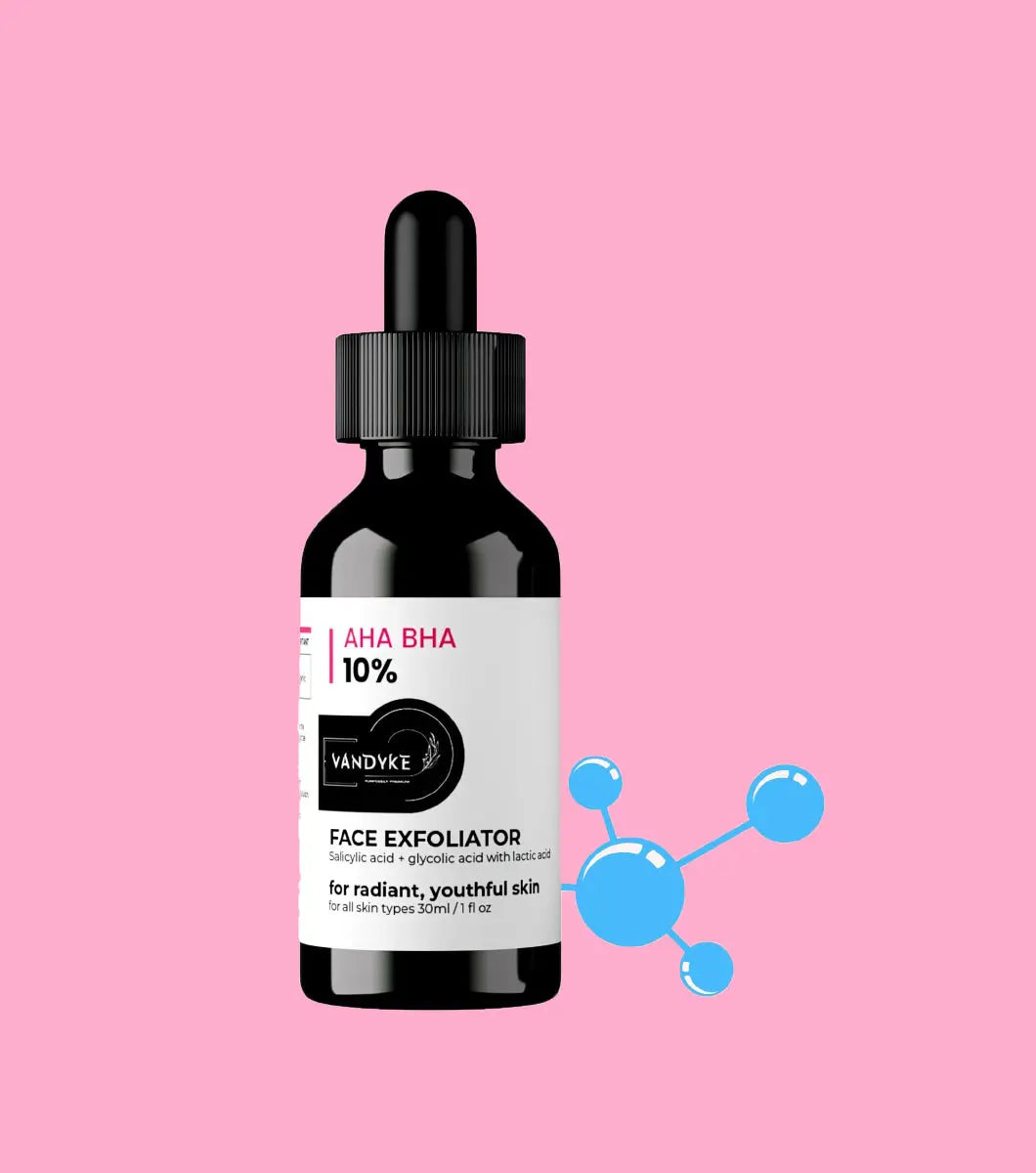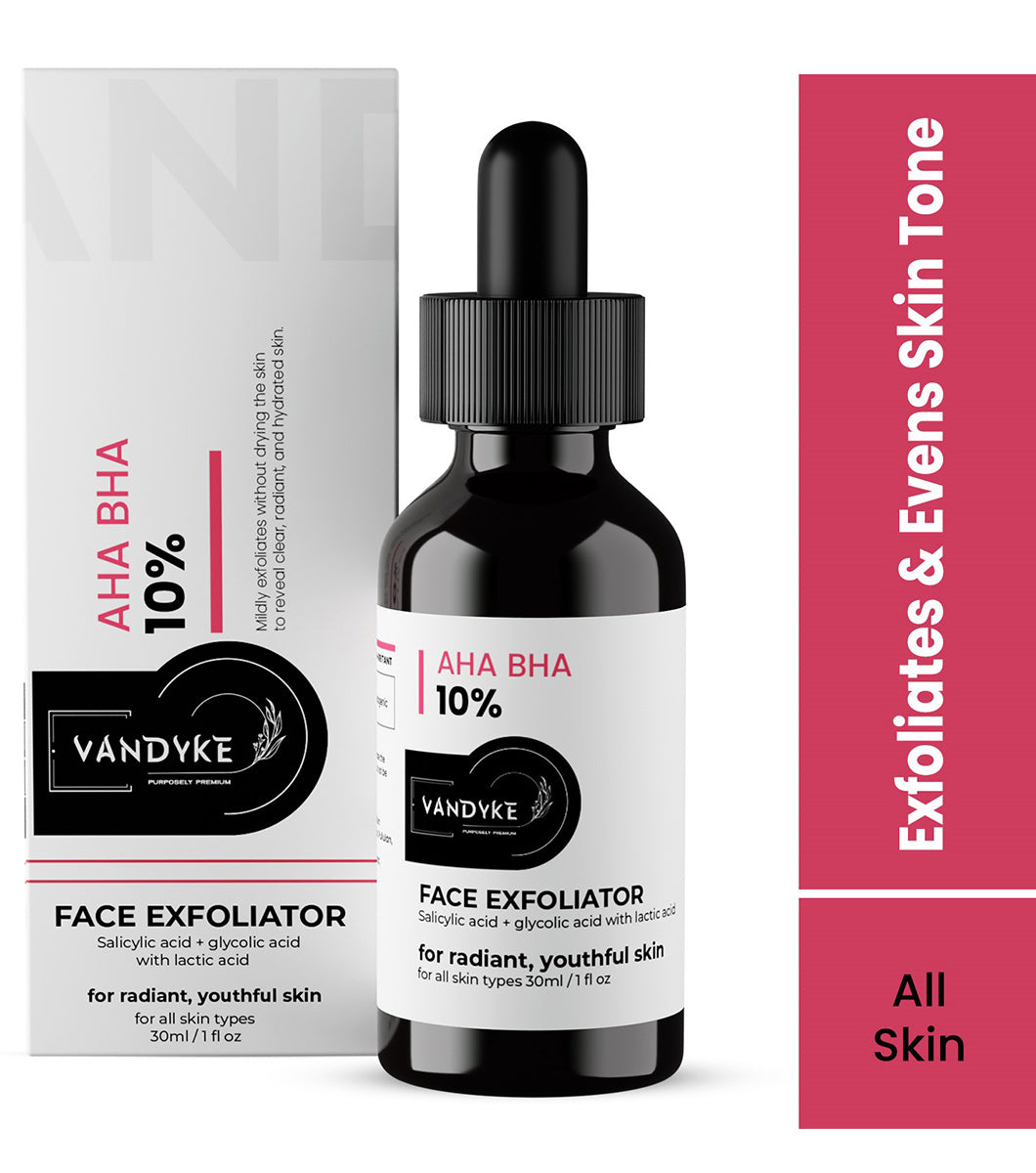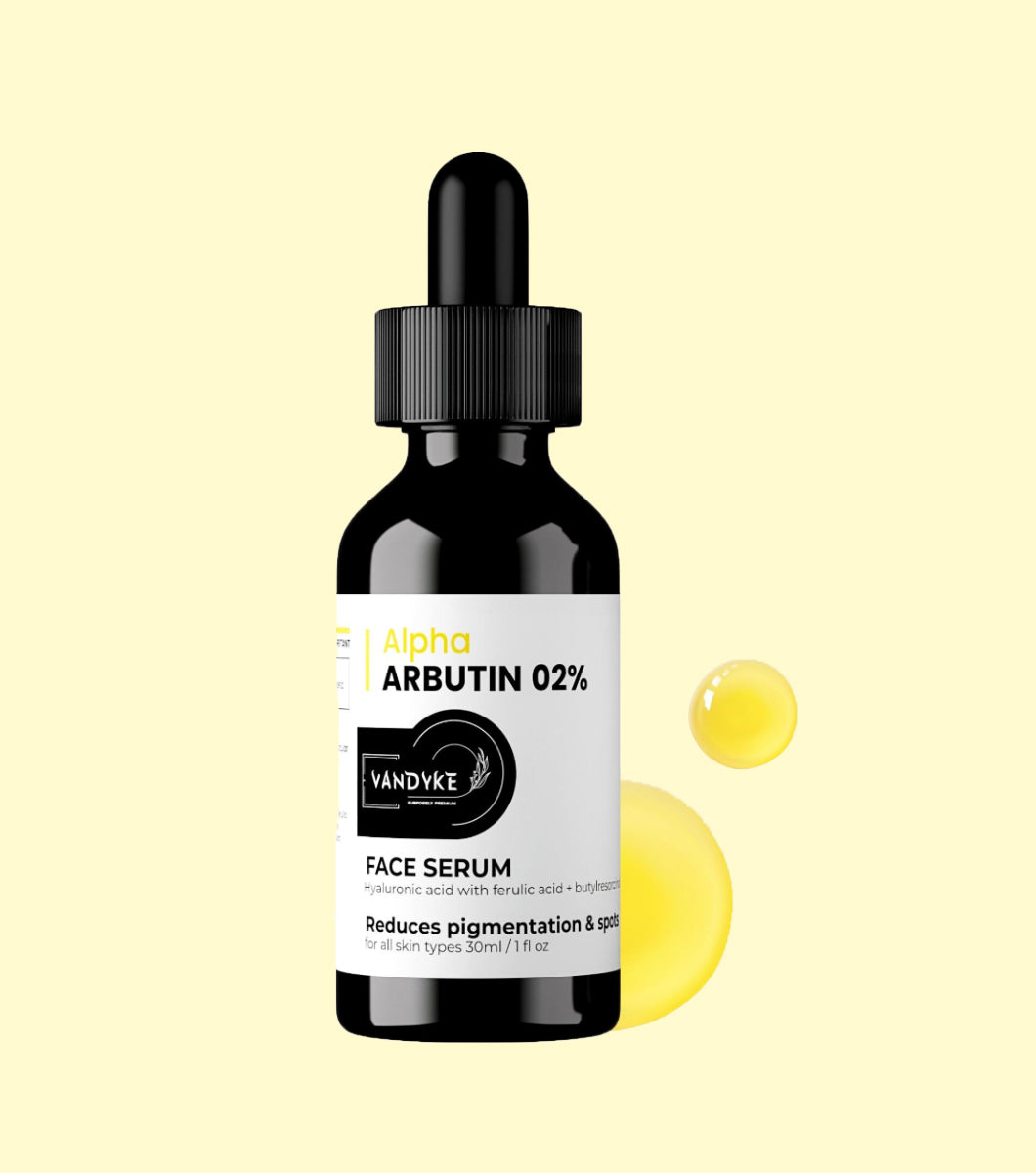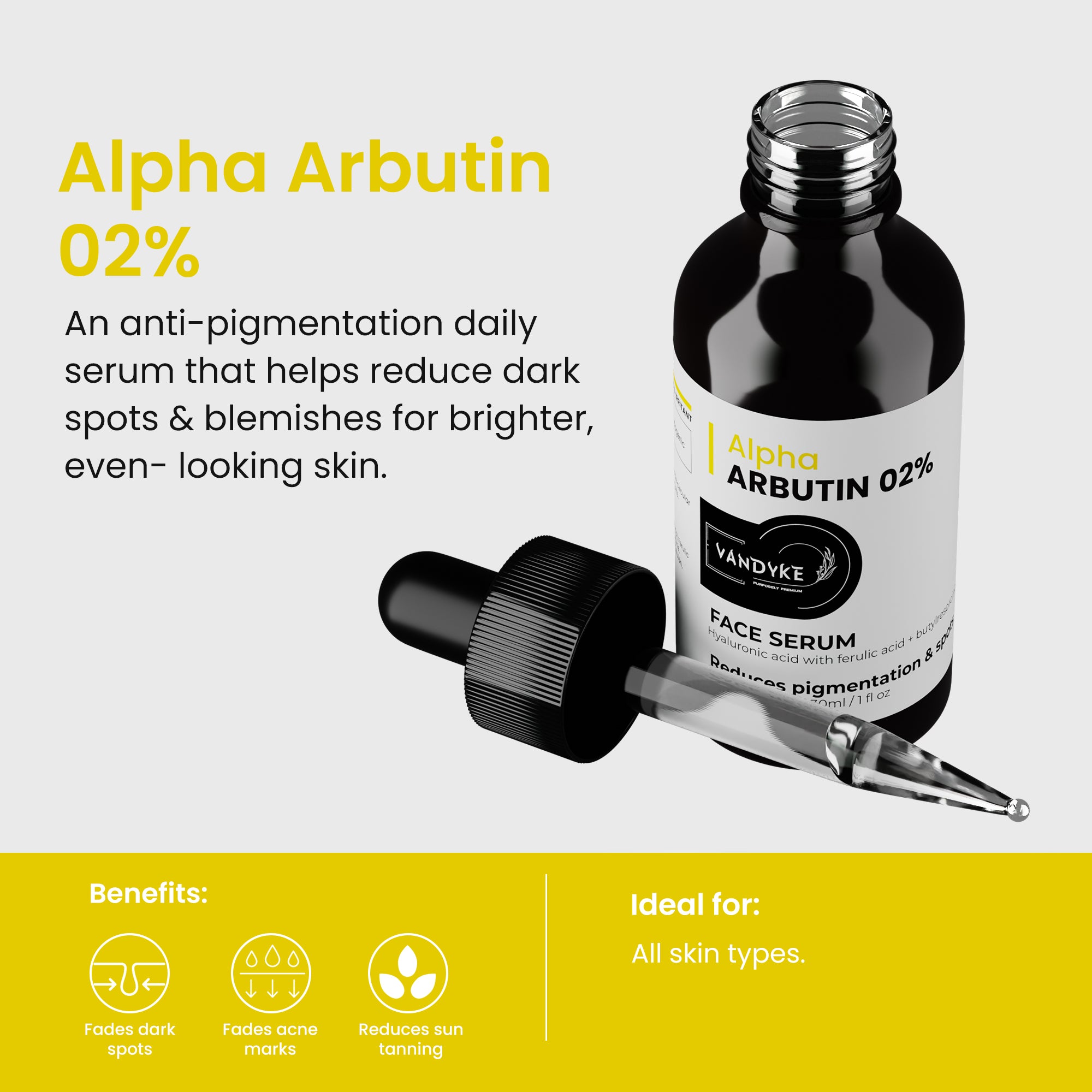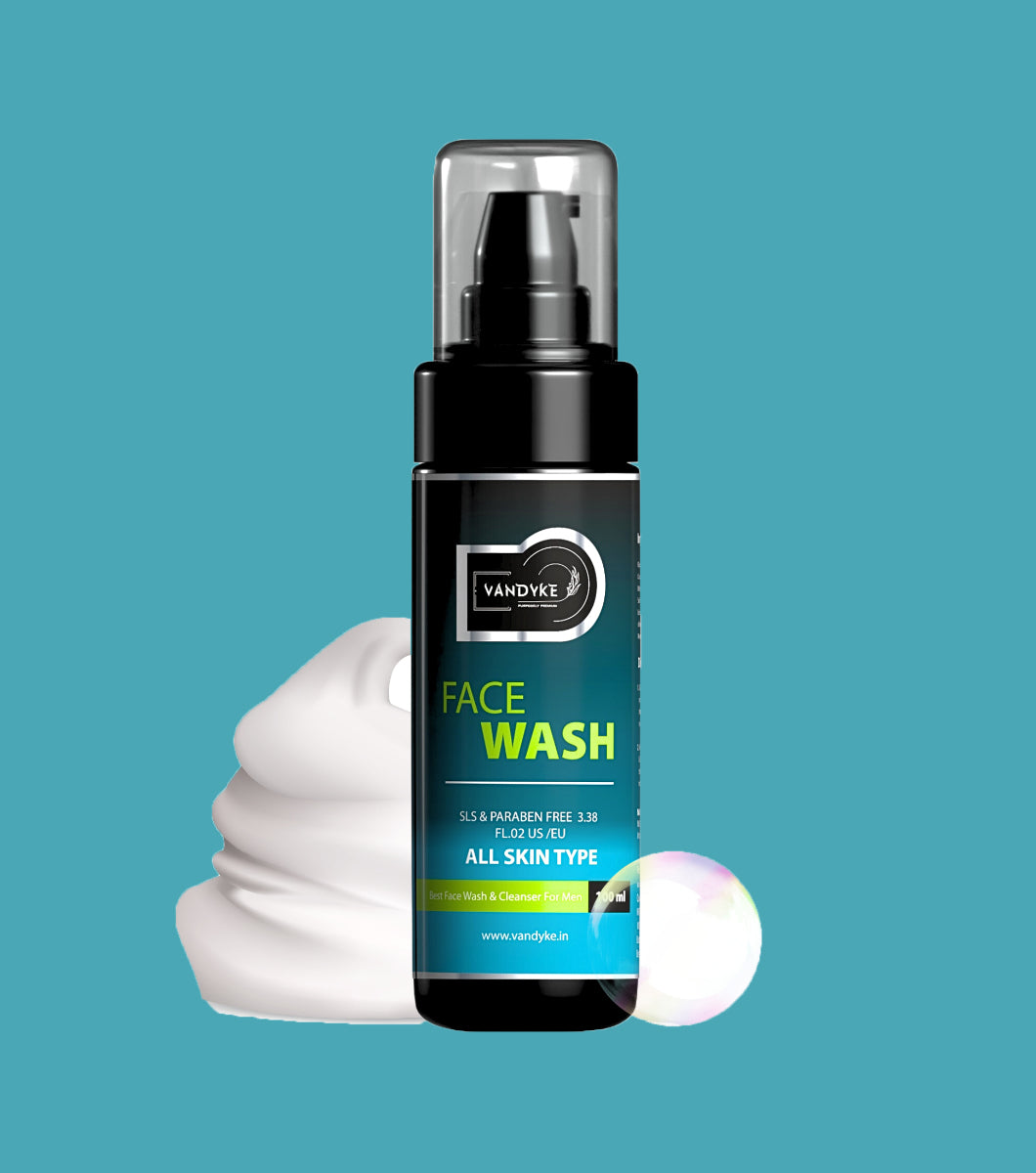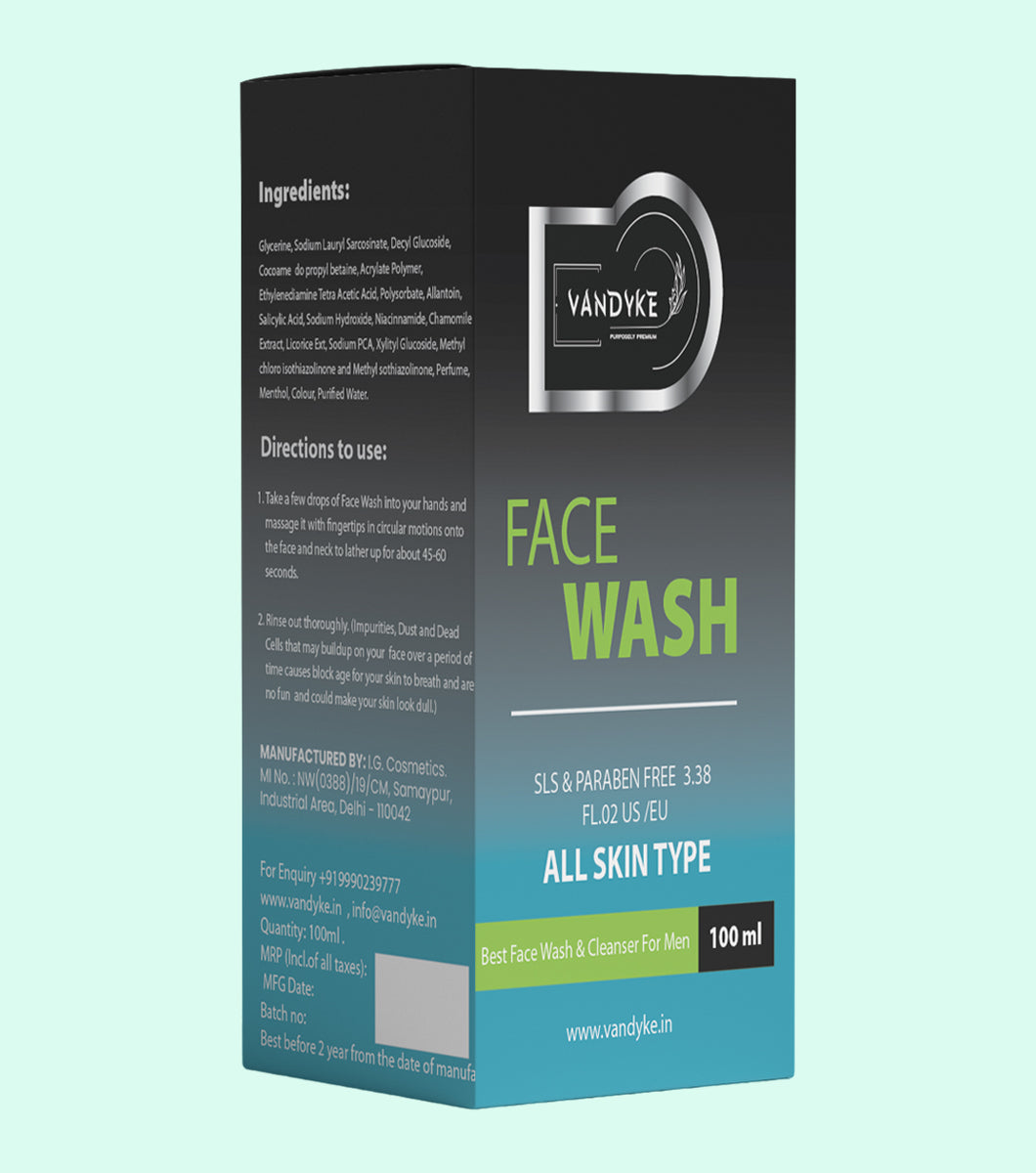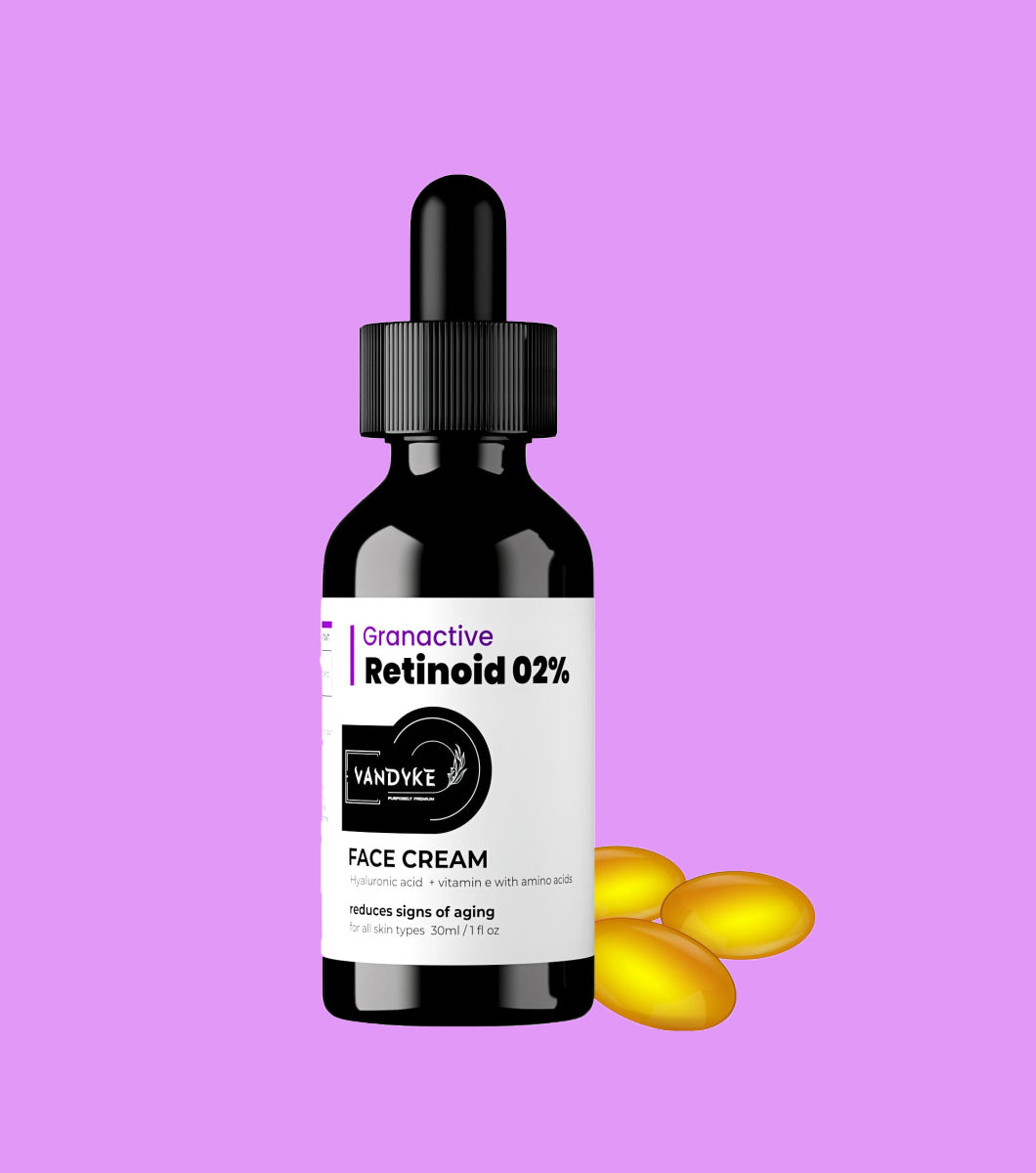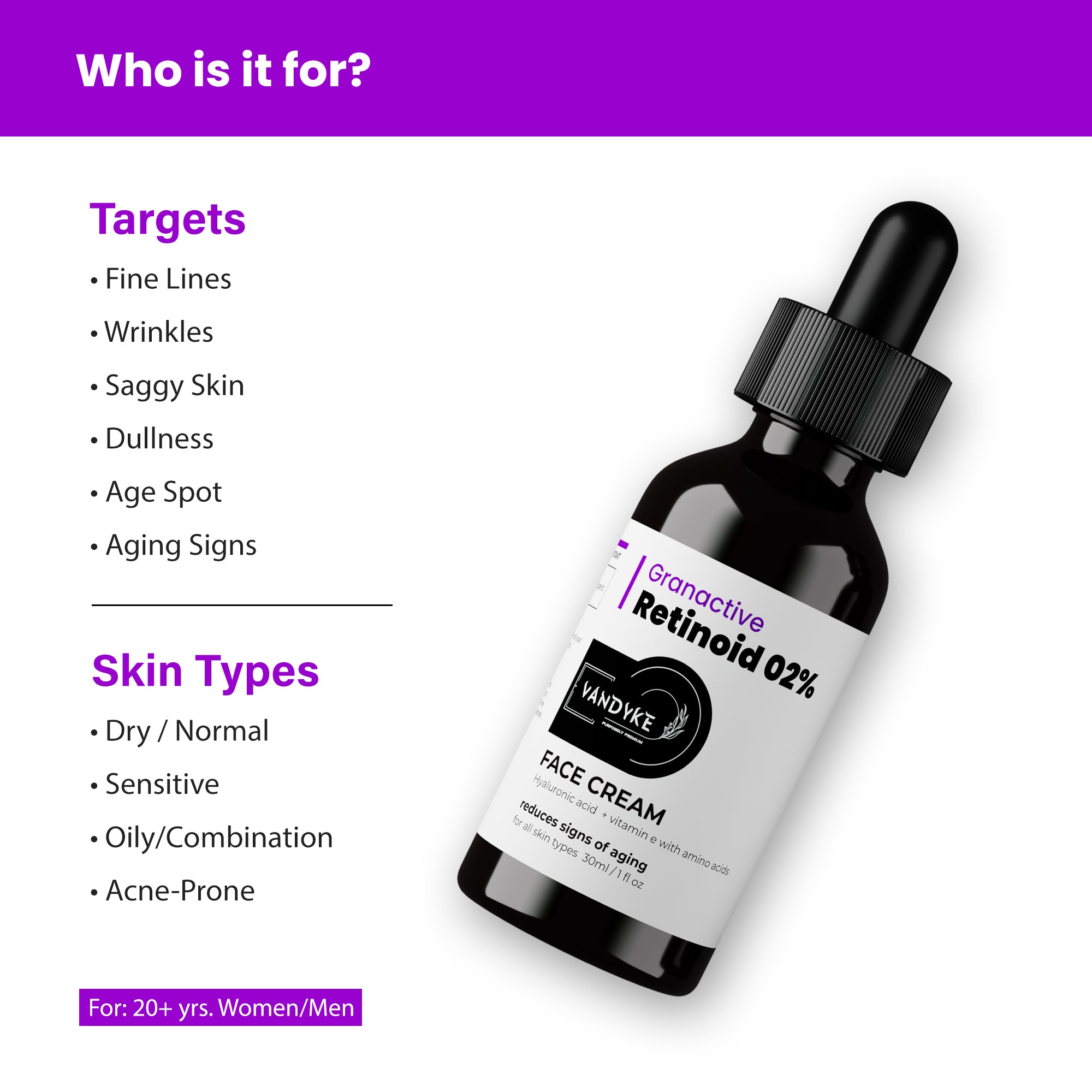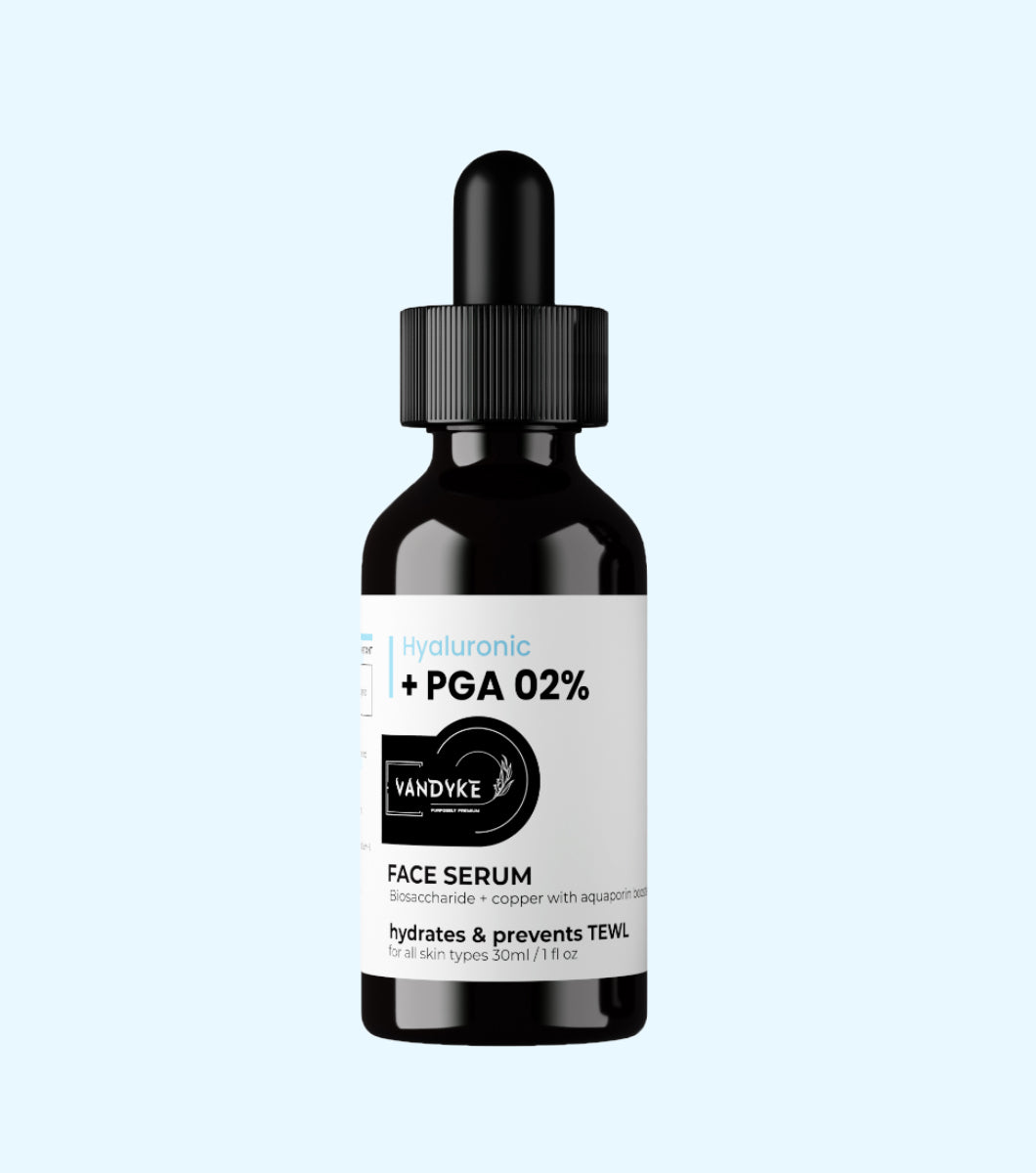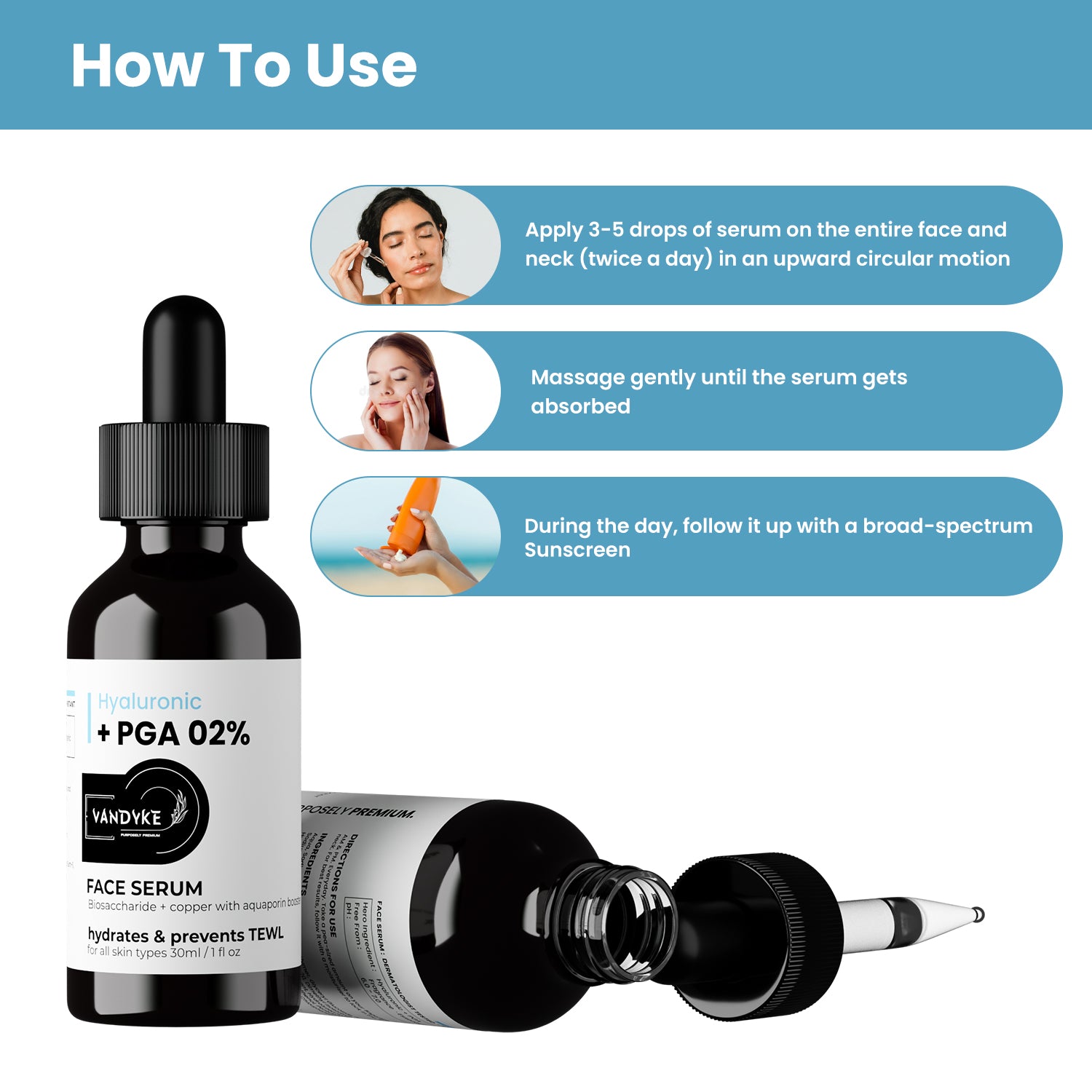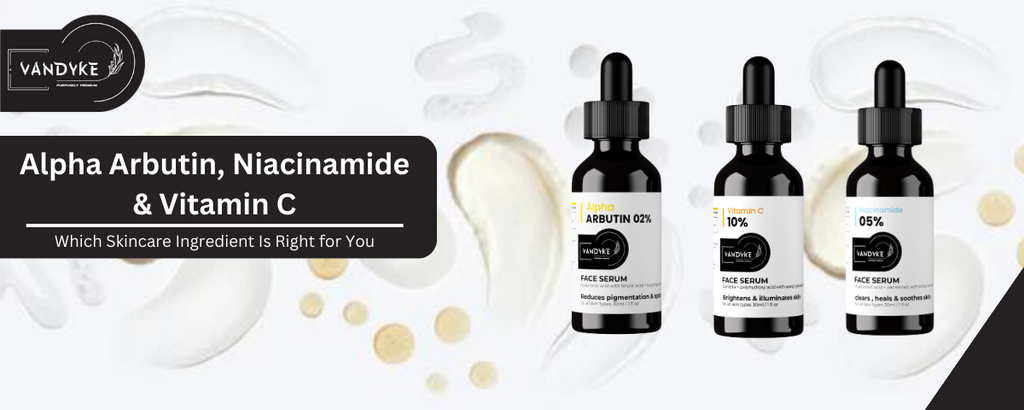
Alpha Arbutin, Niacinamide And Vitamin C Which Skincare Ingredient Is Right for You

Alpha Arbutin, Niacinamide and Vitamin C Which Skincare Ingredient Is Right for You?
Many of us want healthy, glowing skin, and the world of skincare has a plethora of components to help us get there. Among the notable ingredients are Alpha Arbutin, Niacinamide, and Vitamin C, all of which are known for their distinct benefits to skin health. But how can you know which one is best for your skincare regimen? Vandyke will discuss the pros and considerations of various substances in this guide, allowing you to make an informed decision customised to your individual skin requirements.
What is Alpha Arbutin?
The naturally occuring chemical alpha arbutin is generated from the bearberry plant. It is praised in skincare for its outstanding ability to treat hyperpigmentation concerns. But what does it actually do? Alpha Arbutin acts by blocking tyrosinase, an enzyme involved in the synthesis of melanin. Melanin is the pigment that gives our skin, hair, and eyes their colour. When its synthesis is controlled, it avoids over pigmentation in certain locations. This makes Alpha Arbutin an effective treatment for dark spots, sunspots, melasma, and post-acne lesions. It’s well-known for giving you a brighter and more even complexion.
How Does Alpha Arbutin Work?
Alpha Arbutin works by reducing the enzymatic activity of tyrosinase, a key participant in the melanin formation process. Melanin is the pigment that determines the colour of our skin, hair, and eyes. Alpha Arbutin helps to achieve a more balanced and uniform skin tone by controlling melanin synthesis and reducing pigmentation development in certain areas of the skin. This method clarifies how Alpha Arbutin leads to improved skin look and tone.
Benefits of Alpha Arbutin 02%
The benefits of including Alpha Arbutin 2% in your skincare routine are numerous. To begin with, Alpha Arbutin is well-known for its benign nature and is typically well-tolerated by people of all skin types, even those with sensitive skin. As a result, it is a versatile and all-inclusive alternative for a wide range of skincare requirements.
One of the most important advantages of Alpha Arbutin is its ability to treat hyperpigmentation. Whether you have dark spots, uneven skin tone, or melasma, Alpha Arbutin will help you progressively reduce the appearance of these issues. It accomplishes this by blocking the enzyme responsible for melanin formation, assisting in the lightening and fading of regions with excess pigmentation.
Furthermore, Alpha Arbutin is highly valued for its ability to generate a brighter, more even complexion. Because it helps to keep melanin levels in an appropriate and balanced range, regular usage of this substance can result in a radiant and revitalised skin look.
If you are looking for Alpha Arbutin 02% serum for your skin then. Vandyke suggests you to use vandyke alpha arbutin 02% for your skin.
How to Use Alpha Arbutin
The usage of Alpha Arbutin is a simple process, and here’s a step-by-step tutorial on how to do it correctly:
- Select the Right Product
Begin by selecting a serum or cream that has Alpha Arbutin as an active component. Check if the product is reliable and that it is appropriate for your skin type and issues.
- Cleanse Your Face
Begin your skincare routine by thoroughly washing your face. This stage eliminates debris, makeup, and impurities from your skin, preparing it for the upcoming treatments.
You can use vandyke ocean face wash for your skin cleaning.
- Tone (Optional)
Apply toner after cleaning if you use one as part of your skincare routine. Toners can help balance the pH of your skin and improve the absorption of following products.
-
Apply Alpha Arbutin
Take a tiny dose of Alpha Arbutin as indicated on the label or by your dermatologist. Apply it on your face gently, concentrating on areas of hyperpigmentation or uneven skin tone. Vandyke alpha arbutin 02% face serum is a good choice for your skin. Massage it into your skin with your fingertips in an upward and outward motion.
- Allow Absorption
Allow the Alpha Arbutin product to seep into your skin for a few seconds. Avoid vigourous rubbing as this might cause discomfort.
- Moisturize
Following the absorption of the Alpha Arbutin, use an appropriate moisturiser. This aids in the retention of moisture and the preservation of skin hydrated. Choose a moisturizer as per your skin type, if your skin is dry then you can choose vandyke marula oil 05% moisturizer and if your skin is oily then you can choose vandyke sepicalm 03% moisturizer.
-
Sunscreen (Morning Routine)
If you use Alpha Arbutin as part of your morning regimen, you should always follow it up with a broad-spectrum sunscreen with an SPF of at least 30. This is an important step since Alpha Arbutin might make your skin more vulnerable to UV rays. Sunscreen protects your skin from further pigmentation and damage. Use a vandyke SPF 50 sunscreen for your skin.
Remember that individual outcomes may vary, and if you have specific skin issues or conditions, it’s best to seek personalised advice on taking Alpha Arbutin from a dermatologist or skin care professional.
What is Niacinamide?
Niacinamide, also known as Vitamin B3, is a versatile and water-soluble vitamin. What makes it a go-to choice for many skincare enthusiasts? Niacinamide is celebrated for its ability to address a wide range of skin concerns. It works by supporting the skin’s barrier function, which is essential for maintaining hydration and protection. It regulates sebum production, making it a valuable ally for those with oily or acne-prone skin. Furthermore, Niacinamide has anti-inflammatory properties, soothing sensitive or irritated skin. As if that wasn’t enough, it stimulates collagen production, aiding in the battle against fine lines and other signs of aging.
How Does Niacinamide Work?
Niacinamide, also known as vitamin B3, operates through several mechanisms to promote healthy and radiant skin:
- Enhancing Skin Barrier Function
Niacinamide plays a pivotal role in reinforcing the skin’s natural barrier. This barrier is essential for locking in moisture and preventing water loss from the skin. By strengthening this barrier, niacinamide helps maintain optimal skin hydration levels, contributing to a smooth and supple complexion.
- Regulating Sebum Production
Niacinamide can be a game changer for people who have oily or acne-prone skin. It aids in the regulation of sebum, the skin’s natural oil. Niacinamide minimises the chance of blocked pores and acne outbreaks by managing excess sebum, resulting in a cleaner and less oily face.
- Anti-Inflammatory Properties
Niacinamide possesses notable anti-inflammatory properties, making it an excellent choice for sensitive or irritated skin. It soothes redness, calms irritation, and alleviates discomfort. This anti-inflammatory action is particularly beneficial for individuals with conditions like rosacea or eczema.
-
Collagen Production Stimulation
As we age, the production of collagen, a structural protein crucial for skin’s firmness and elasticity, diminishes. Niacinamide comes to the rescue by stimulating collagen synthesis. This can help reduce the appearance of fine lines and wrinkles, ultimately contributing to a more youthful and resilient complexion.
In summary, niacinamide is a versatile skincare ingredient that offers a range of benefits, including reinforcing the skin barrier, controlling sebum production, soothing inflammation, and promoting collagen production. Its multifaceted approach makes it suitable for a wide array of skin types and concerns, making it a valuable addition to many skincare routines.
Who Is Niacinamide Best For?
Niacinamide’s adaptability makes it suitable for almost all skin types and concerns. Whether you’re combating acne, aiming to minimize fine lines, or simply want to maintain a healthy complexion, Niacinamide can likely find a place in your skincare regimen.
How to Use Niacinamide
Niacinamide often appears in serums, moisturizers, or even standalone products. The greatest niacinamide product is niacinamide face serum. However, niacinamide will be available in two concentrations: 05% and 10%. Vandyke recommends starting with vandyke niacinamide 05% if you are new to niacinamide and if you have more difficult skin issues. Then vandyke niacinamide 10% face serum is a good choice for your skin.
It can be applied morning and night, fitting seamlessly into your existing routine.
What is Vitamin C?
Vitamin C, or ascorbic acid, is a potent antioxidant known for its skin-transforming capabilities. Internally, it’s beneficial for overall health, but when applied topically, it becomes a game-changer for your skin. How does it work its magic? Vitamin C combats free radicals, unstable molecules that can wreak havoc on skin cells and accelerate the aging process. By neutralizing these free radicals, Vitamin C helps protect your skin from environmental stressors, such as pollution and UV radiation. Additionally, it brightens the skin by inhibiting melanin production, making it a top choice for fading dark spots and achieving a radiant complexion.
How Does Vitamin C Work?
Vitamin C, also known as ascorbic acid, works in multiple ways to benefit the skin:
- Antioxidant Defense
One of the primary roles of vitamin C is its powerful antioxidant properties. It serves as a potent scavenger of free radicals—unstable molecules that can wreak havoc on skin cells. Free radicals are often generated due to factors like UV exposure, pollution, and stress. By neutralizing these free radicals, vitamin C helps protect skin cells from oxidative damage, ultimately slowing down the aging process. This results in healthier, more youthful-looking skin.
- Brightening Effect
Vitamin C is well-known for its ability to lighten skin. It accomplishes this by preventing the formation of melanin, the pigment that causes skin pigmentation. Vitamin C helps remove dark spots, hyperpigmentation, and uneven skin tone by controlling melanin production. This results in a complexion that is more even, radiant, and luminous.
- Collagen Production
Vitamin C is also involved in the synthesis of collagen, a protein crucial for skin’s firmness and elasticity. Collagen production naturally declines with age, contributing to the formation of wrinkles and sagging skin. By stimulating collagen synthesis, vitamin C can help maintain skin’s structural integrity, resulting in a smoother and more youthful appearance.
-
Protection Against UV Damage
While vitamin C is not a replacement for sunscreen, it can complement sun protection measures. When applied topically, vitamin C may provide some level of defense against UV-induced skin damage. However, it’s essential to continue using sunscreen as your primary protection against harmful UV rays.
In summary, vitamin C is a versatile skincare ingredient that combats free radicals, brightens the skin by reducing melanin production, and supports collagen synthesis. Its antioxidant properties make it a valuable addition to skincare routines, helping to maintain skin health, prevent premature aging, and achieve a more radiant complexion.
Who Is Vitamin C Best For?
Vitamin C is suitable for most skin types, particularly those concerned with dullness, uneven tone, or signs of premature aging. It can be especially beneficial for individuals exposed to environmental stressors like pollution and UV radiation.
How to Use Vitamin C?
Vitamin C serums are the most common form of topical application. These are typically used in the morning, before sunscreen, to enhance protection against UV damage. However, they can also be used at night for added benefits. Choose vandyke vitamin C 10% face serum for your skin.
Choosing the Right Ingredient for You
Now that you’re acquainted with these skincare superheroes, how do you determine which one is your ideal sidekick? Here are some considerations:
- Your Skin Type
While Alpha Arbutin is generally gentle, Niacinamide is renowned for its soothing properties, making it an excellent choice for sensitive skin. Vitamin C can sometimes cause irritation for those with very sensitive skin, so proceed with caution.
- Specific Skin Concerns
If hyperpigmentation and uneven skin tone are your primary concerns, Alpha Arbutin should be at the top of your list. For a more comprehensive approach addressing multiple concerns, Niacinamide is a fantastic all-rounder. If you’re looking to boost your skin’s defense against external aggressors and achieve a radiant glow, Vitamin C is a solid choice.
-
Existing Skincare Routine
Consider how these ingredients fit into your current regimen. It’s generally safe to combine Alpha Arbutin or Niacinamide with most other skincare ingredients. However, when using Vitamin C, be cautious about potential interactions with ingredients like niacinamide or retinol.
- Patch Testing
Before incorporating any new skincare product, especially one with potent ingredients, perform a patch test to ensure your skin tolerates it well.
In conclusion, achieving your skincare goals requires thoughtful consideration of your unique skin type and concerns. Whether you opt for Alpha Arbutin, Niacinamide, or Vitamin C, remember that consistency is key, and results may take time. Ultimately, the right choice for you is the one that aligns with your skin’s needs and makes you feel confident in your own skin.
